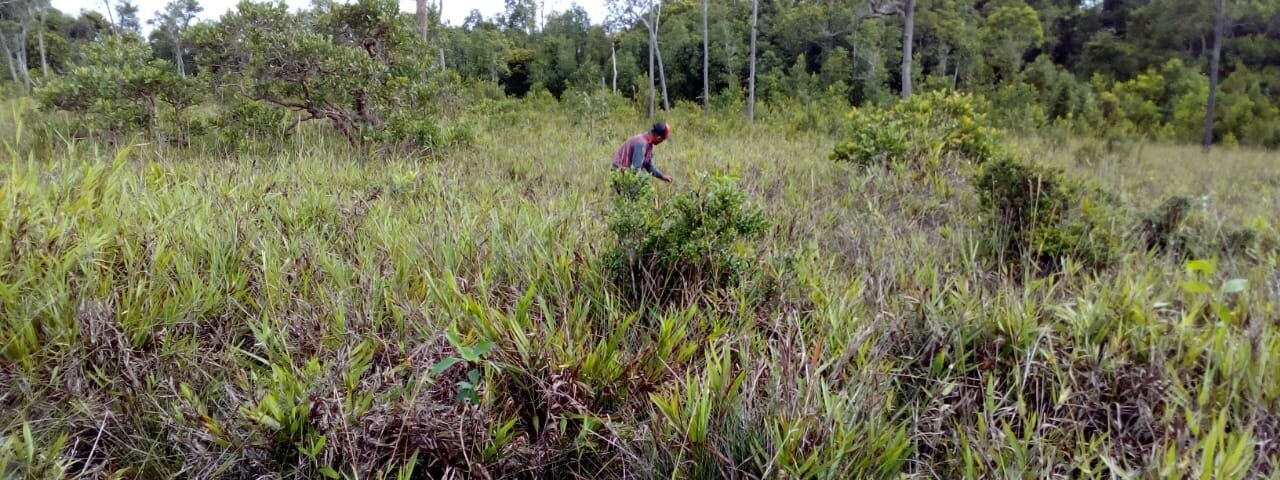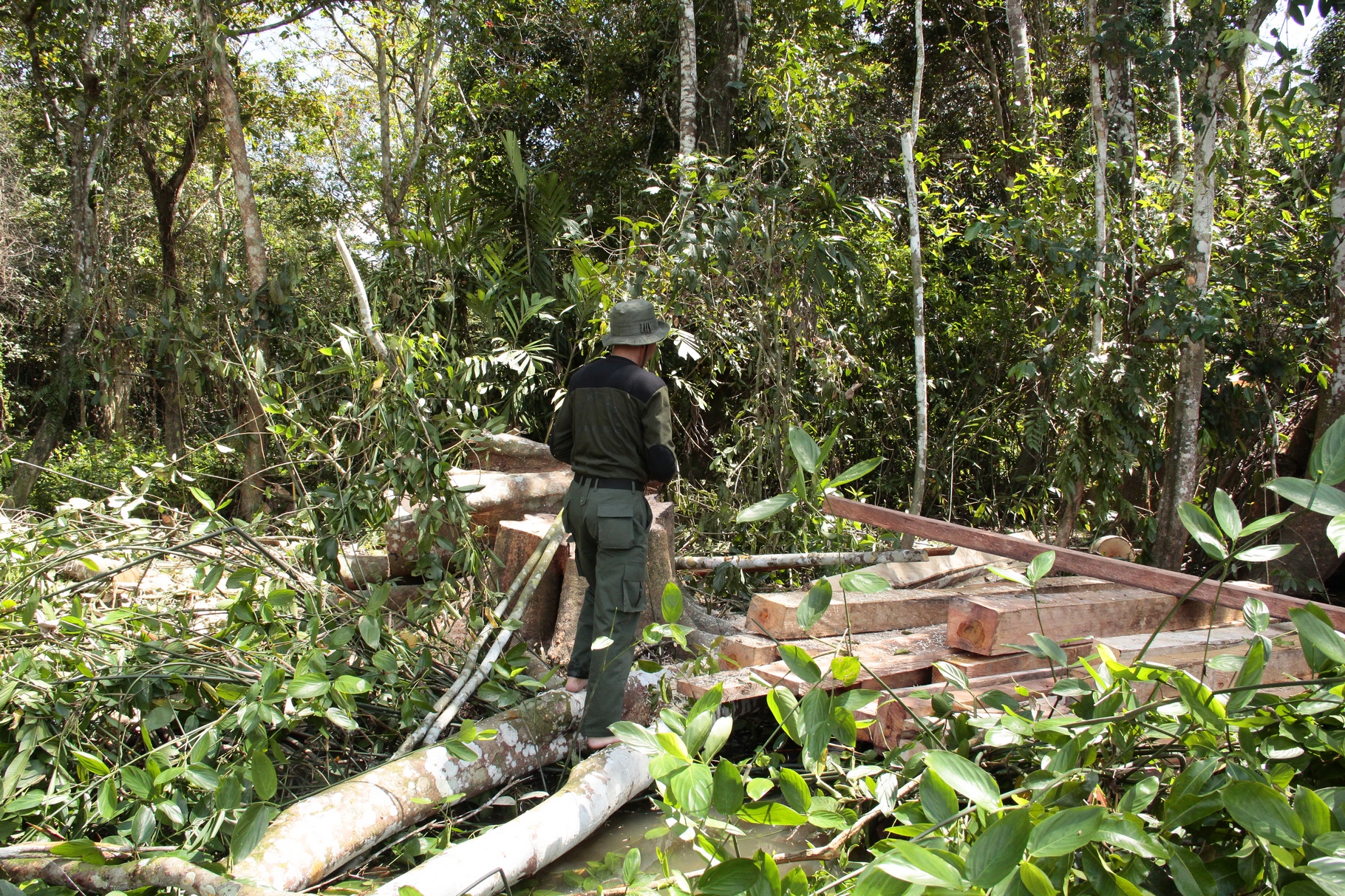The use of drones has been on the rise - they have become critical in conservation, enhancing our habitat protection efforts and changing the way we work.
Support orangutan habitat for International Orangutan Day
This week please help us protect 300 acres of crucial orangutan habitat to reach our goal on International Orangutan Day, Wednesday 19th August.
This would be a wonderful reward for our team who have continued to work through lockdown, and for the Foundation as a whole on our 30th anniversary. Importantly however, it would ensure that we can continue to protect and reforest a vital biodiverse ecosystem, home to around 5,000 critically endangered orangutans.
Every sponsor between 12th-19th August will receive an email acknowledgement thanking them for their generosity. It can even be bought as an e-gift by entering a name and email address into the ‘Additional Info’ tab during the checkout process.
It costs just £2 to safeguard an area of tropical forest for a whole year, so truly every tree and every penny counts!
30 years and counting
This year at the Foundation we are celebrating an important milestone- 30 years of conservation.
30 years protecting the critically endangered orangutan. 30 years on the front line guarding the vulnerable tropical forests of Borneo. 30 years collaborating with local people with environmental education and sustainable land-management practices.
The Orangutan Foundation’s programmes and primary focus is in Central Kalimantan, Indonesian Borneo. Our country office in Pangkalan Bun is responsible for the livelihoods of 55 staff, all of whom are Indonesian from local towns and villages. This means that our dedicated workforce are fully appreciative of their surrounding environment and understand the importance of protecting their nearby forests.
In spite of the difficulties that we are currently all facing around the world, the threat to tropical forests in Borneo remains a constant, and our 10 guard posts are still alert to monitor any cases of illegal activity. These posts contain fire-fighting equipment and continue to play a vital role in protecting over half a million acres of forest across the Lamandau Wildlife Reserve and Tanjung Puting National Park (below).
The Foundation’s five post release monitoring camps within the Lamandau Wildlife Reserve (above left) continue to oversee reintroduced orangutans and the 10 young orphans currently in our soft-release programme. These orphans have been rescued from a life in captivity and offered a new chance of a future in the wild by learning essential skills in the safety of a protected forest.
Elsewhere in Tanjung Puting National Park, our remote camera traps are recording a fascinating insight into the diverse forests surrounding Pondok Ambung Tropical Forest Research Station (above right). Clouded leopards, tarsiers, sun bears, proboscis monkeys, and false gharial crocodiles are a handful of the unique species that continue to be observed and studied closely here.
Meanwhile, our Habitat Restoration Programme has also been active in recent months. To date over 75,000 tree saplings have been planted since the devastating forest fires of 2015, and our team of experts are still diligently cultivating a new generation of saplings to reintroduce into the wild. We hope that these young plants which are more resistant to fires, will soon help rejuvenate new patches of forest and form part of a healthy natural ecosystem for years to come.
The Orangutan Foundation operates in Indonesia under an MoU with the Ministry of Environment & Forestry and has a responsibility for our own field programmes. We were also the first organisation in the UK to raise awareness of the critically endangered orangutan and its threatened habitat 30 years ago. Despite the challenges that we face today, at the Foundation we know that we can continue our vital work long into the future. If you can, please help us maintain our important ongoing programmes by sponsoring an acre of tropical forest, adopting an orphaned orangutan, or making a donation today.
Our progress relies on the kindness of our supporters, members, and partners, so thank you for your dedicated support.
Stewards of the forest
The protection and restoration of tropical forest habitat remains at the core of ensuring a future for orangutans, not to mention the thousands of other species that rely on one of the planet’s most diverse ecosystems. Fortunately amidst the current climate, our guard post and habitat restoration staff are still hard at work.
By conducting regular patrols, guard posts can monitor and protect orangutan habitat.
Our guard posts continue to record wildlife sightings as they conduct routine patrols on the river and through the forests of the Lamandau Wildlife Reserve. This is an effective strategy to prevent illegal activities such as logging, mining and fishing from occurring within the reserve.
By planting new saplings around forest peripheries, we can restore orangutan habitat previously lost in forest fires. In particular from the large fires of 2015 which decimated vast areas of vegetation.
As well as protecting existing forest, restoring degraded areas of habitat is key to the survival of orangutans and to combat the effects of climate change. Last month from our plant nursery the habitat restoration team carefully chose 16,500 seedlings to be replanted in the Lamandau Wildlife Reserve. The selection process for every sapling is critical as there are a number of factors to take into account before they can be planted in the wild, and it can take many years for tree saplings to grow to a forest canopy level.
Firstly, our team ensure that each plant in the nursery is growing straight, has reached the minimum height, and has green and healthy leaves before they can be delicately transported to their planting site. It then takes time for each sapling to acclimatise to direct sunlight in the nursery. This adjustment will ensure that saplings have the best possible chance to mature into trees which one day could form part of the high forest canopy.
The nine different species chosen by our team are more fire-resistant and therefore have the best chance to regenerate forest that has been destroyed. Selecting the location for each species is also a crucial factor as the soil, water level and surrounding vegetation all influence how the saplings will develop. We will continue to monitor the progress of these saplings and hope that they can form part of the surrounding Lamandau Wildlife Reserve.
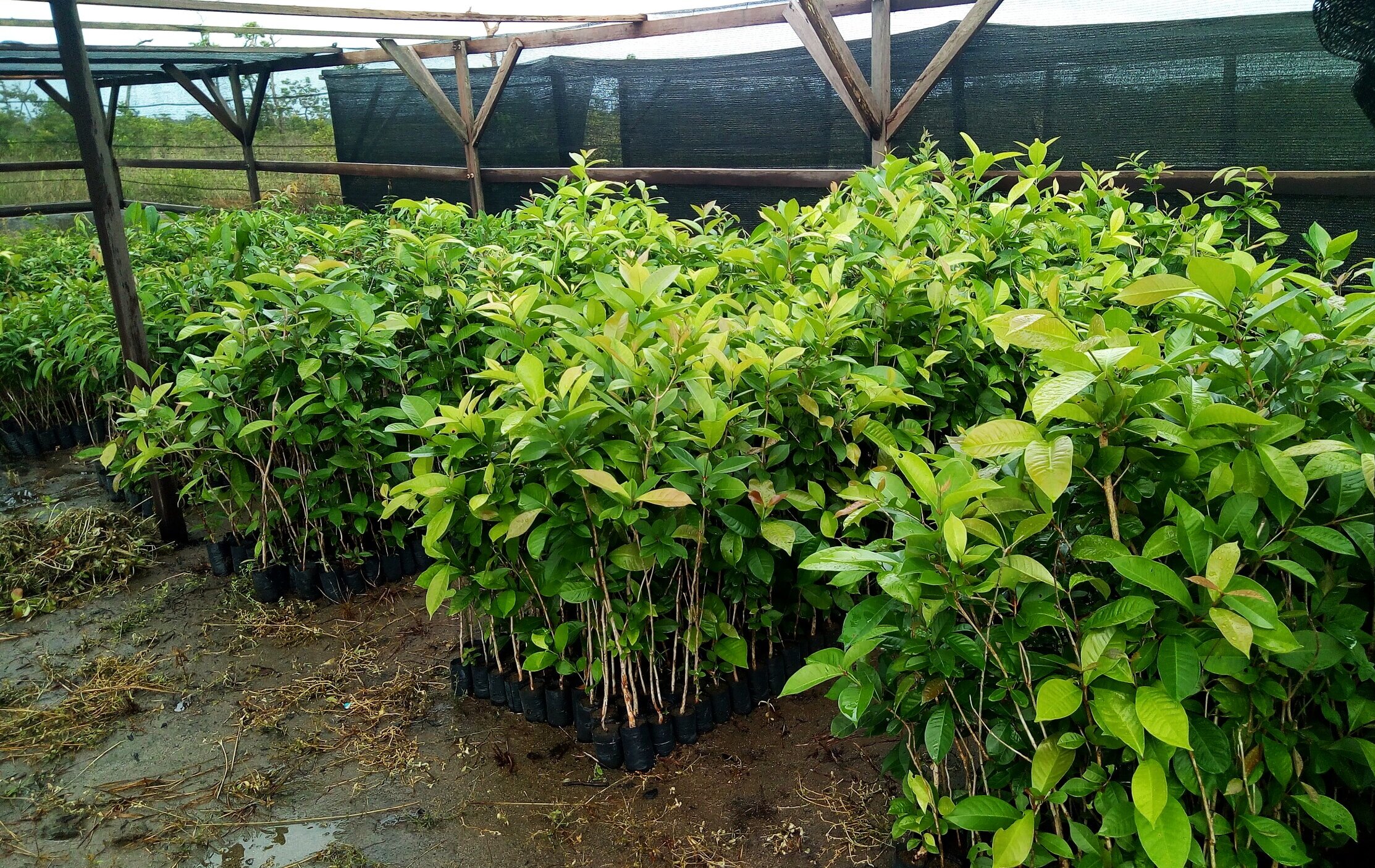
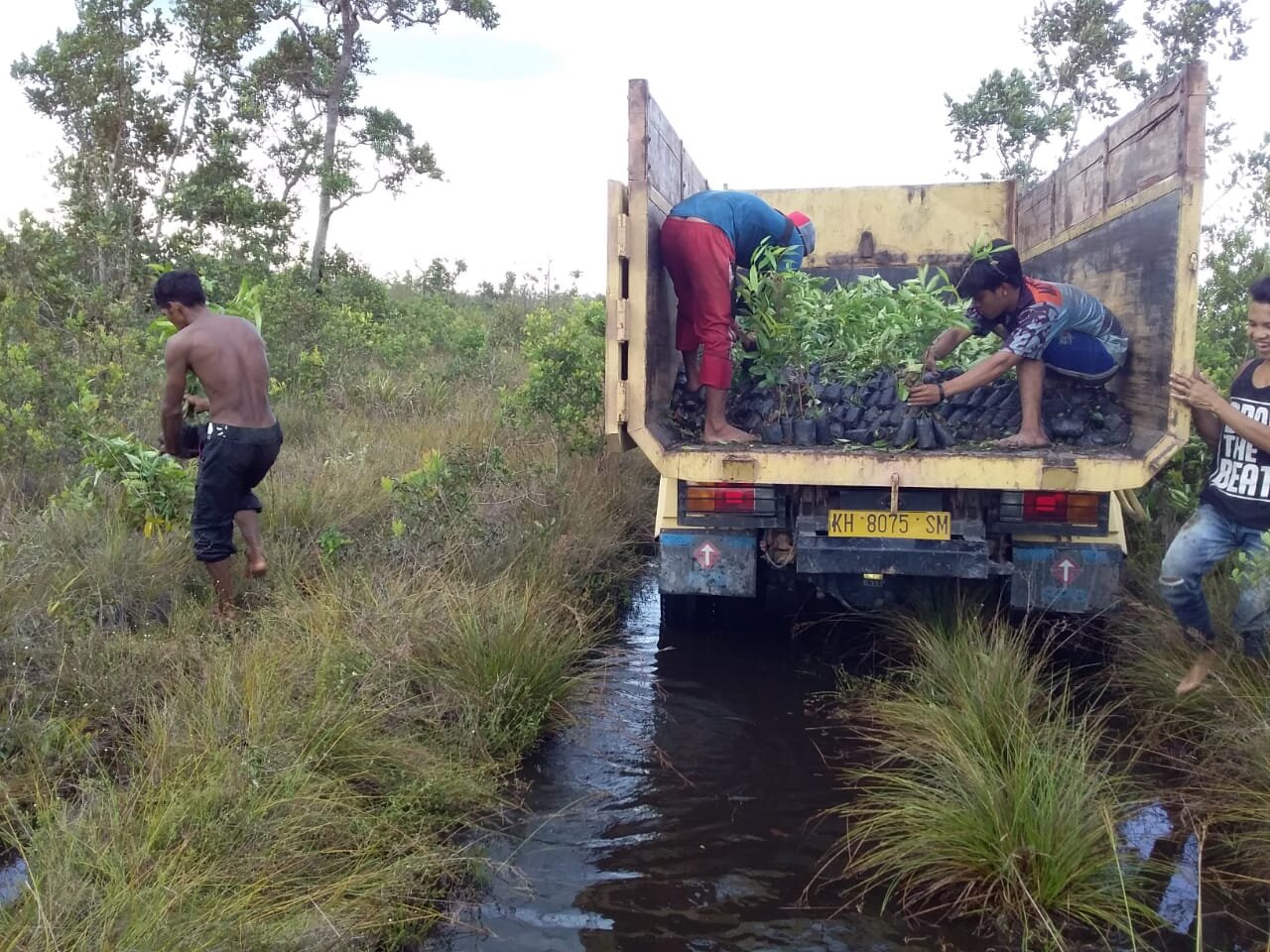
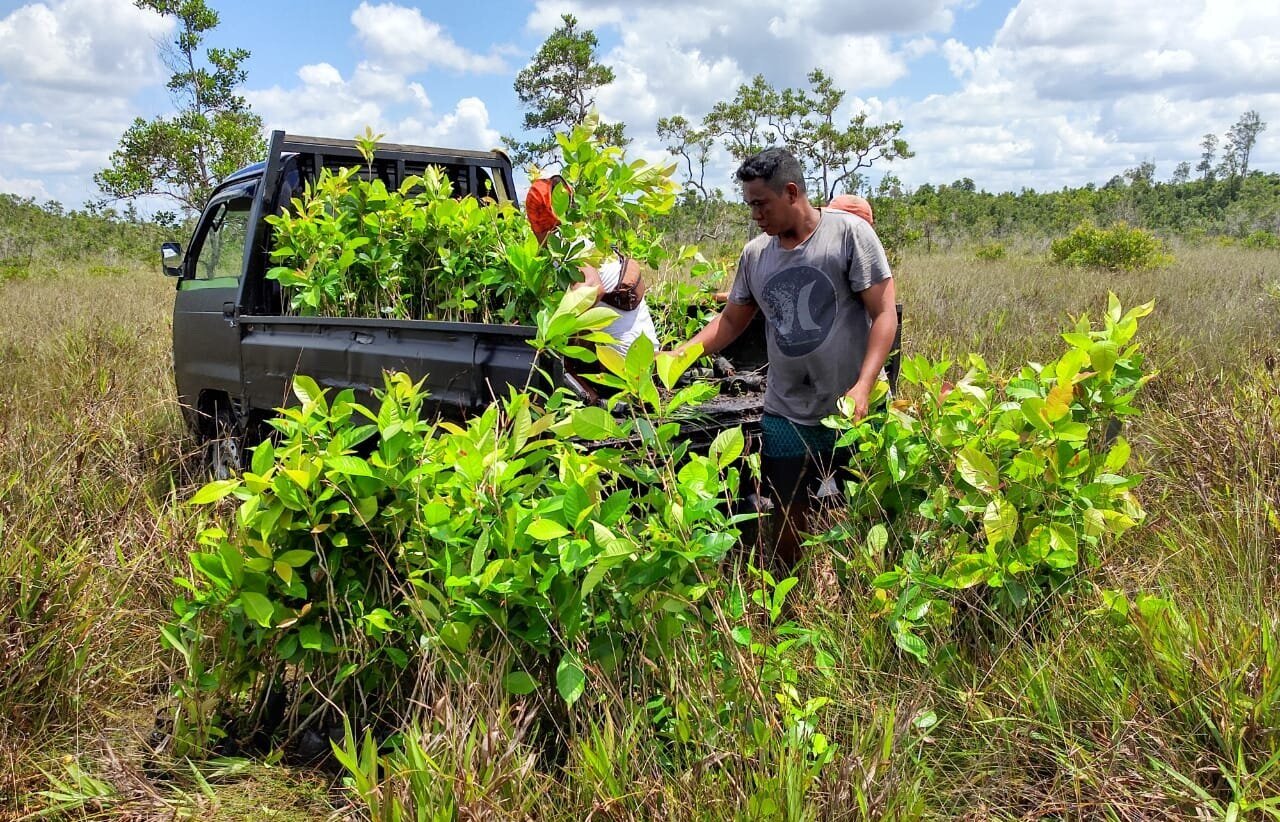
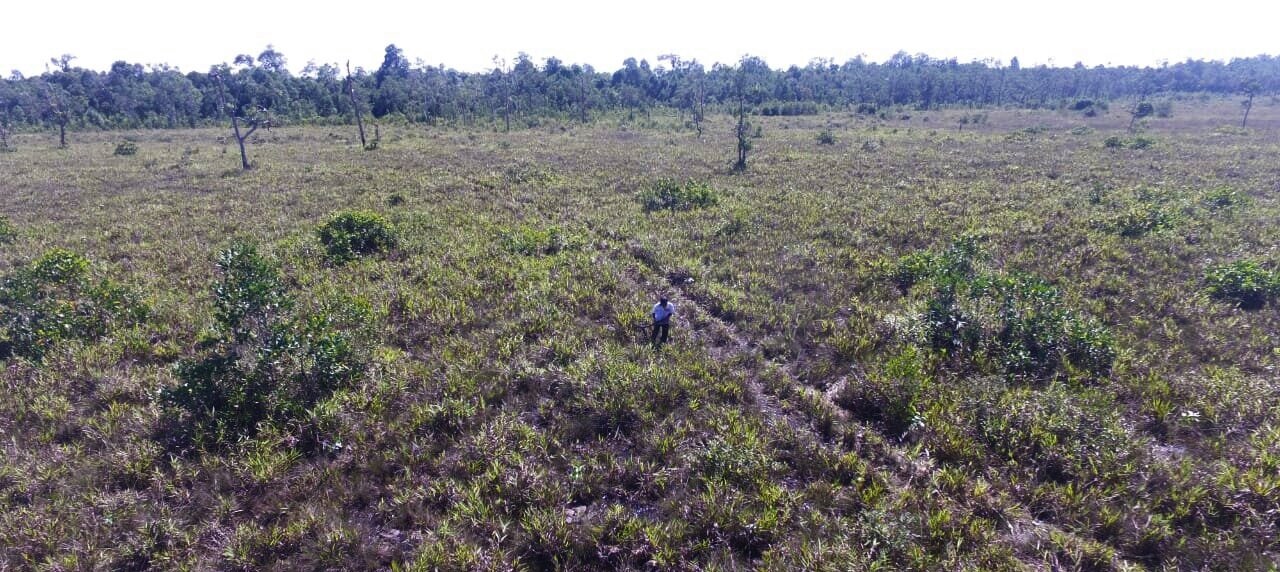
While activities in many parts of the world are currently at a standstill, we are proud that our staff in the field are largely able to persevere with our ongoing conservation programmes. You can help guarantee that these vital programmes continue by participating in a fundraising activity of your choice on Sunday 26th April through the 2.6 Challenge- an event you can complete at home to help UK charities.
Alternatively, you can support our work directly by sponsoring an acre of forest or purchasing an e-gift donation towards our programmes below.
How guard posts play a crucial role in orangutan conservation
At the Orangutan Foundation, two main areas of orangutan forest habitat where we work are Tanjung Puting National Park and the Lamandau Wildlife Reserve in Indonesian Borneo. Together they cover over half a million acres of forest- almost twice the size of Hong Kong. It’s therefore essential that the Foundation’s guard post teams are skilled and well trained to monitor the forest and waterways within this vast area.
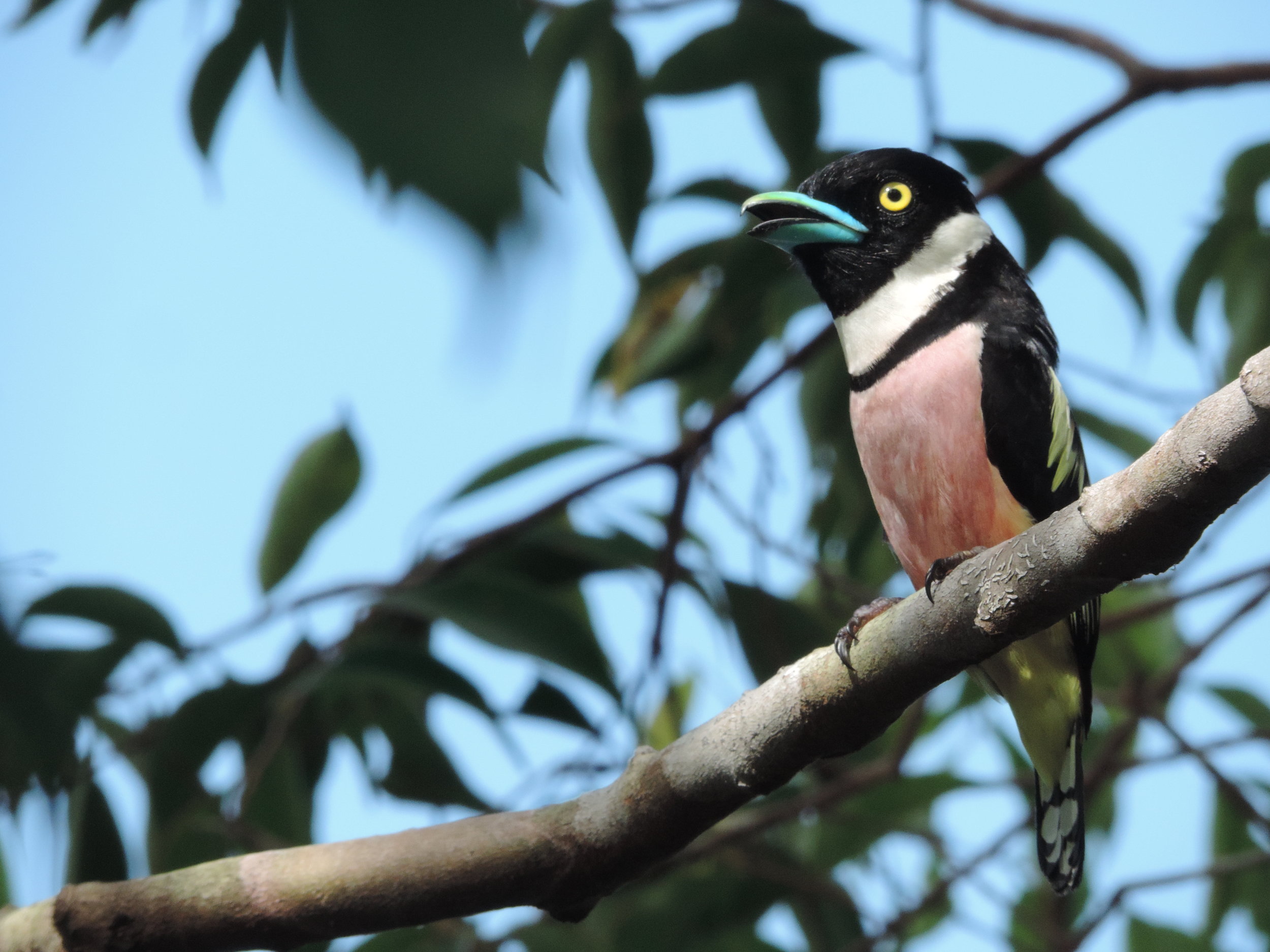
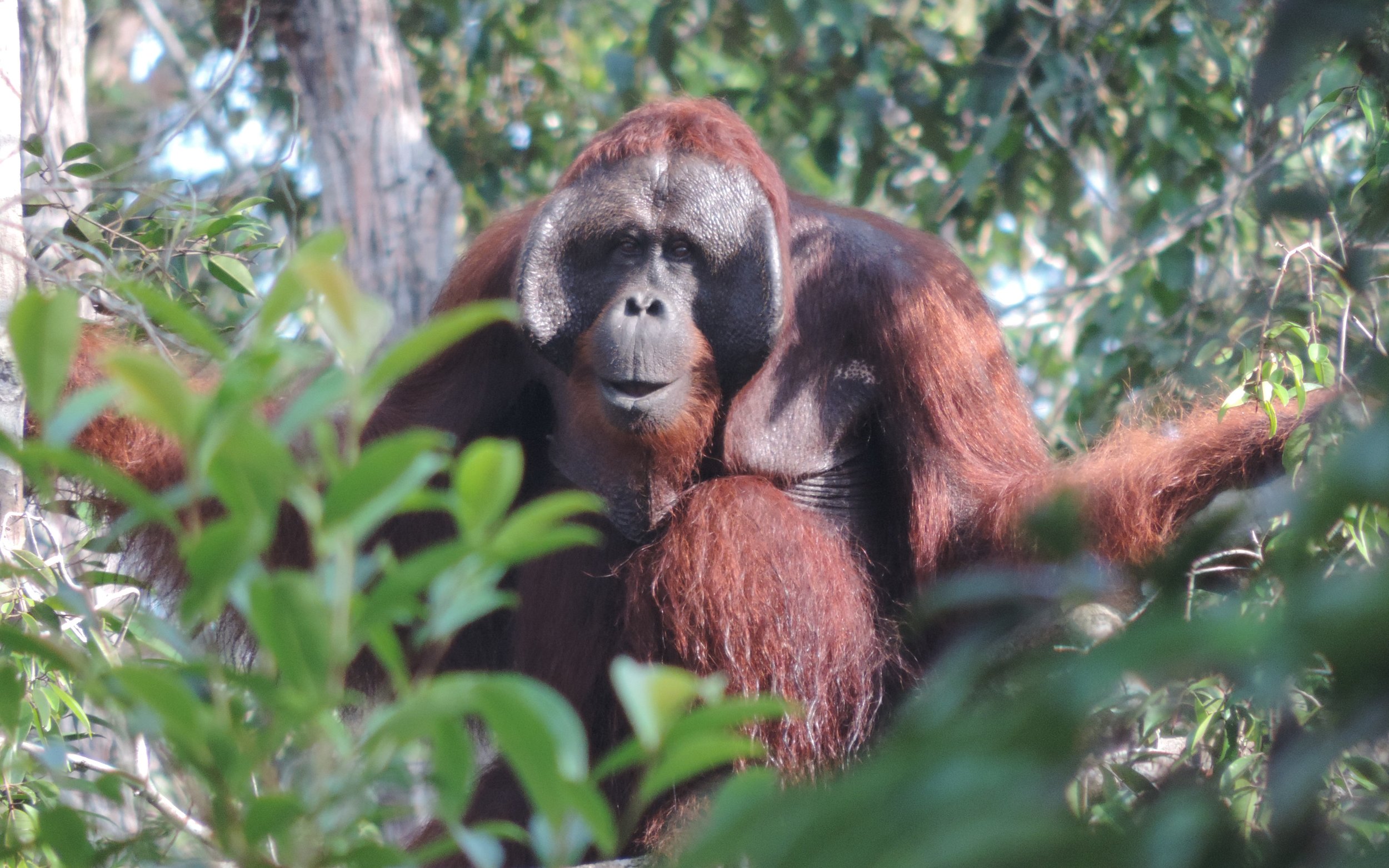
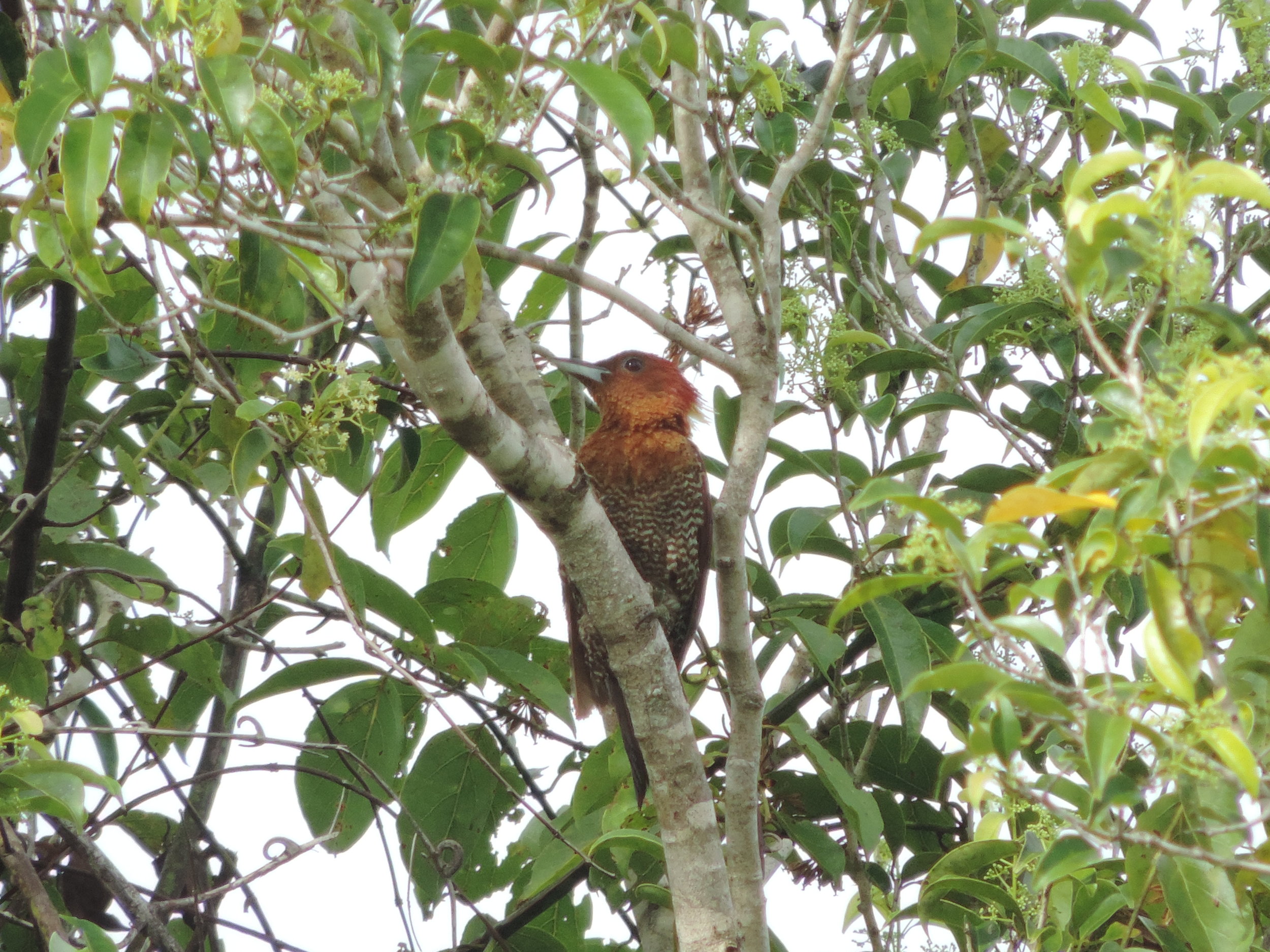
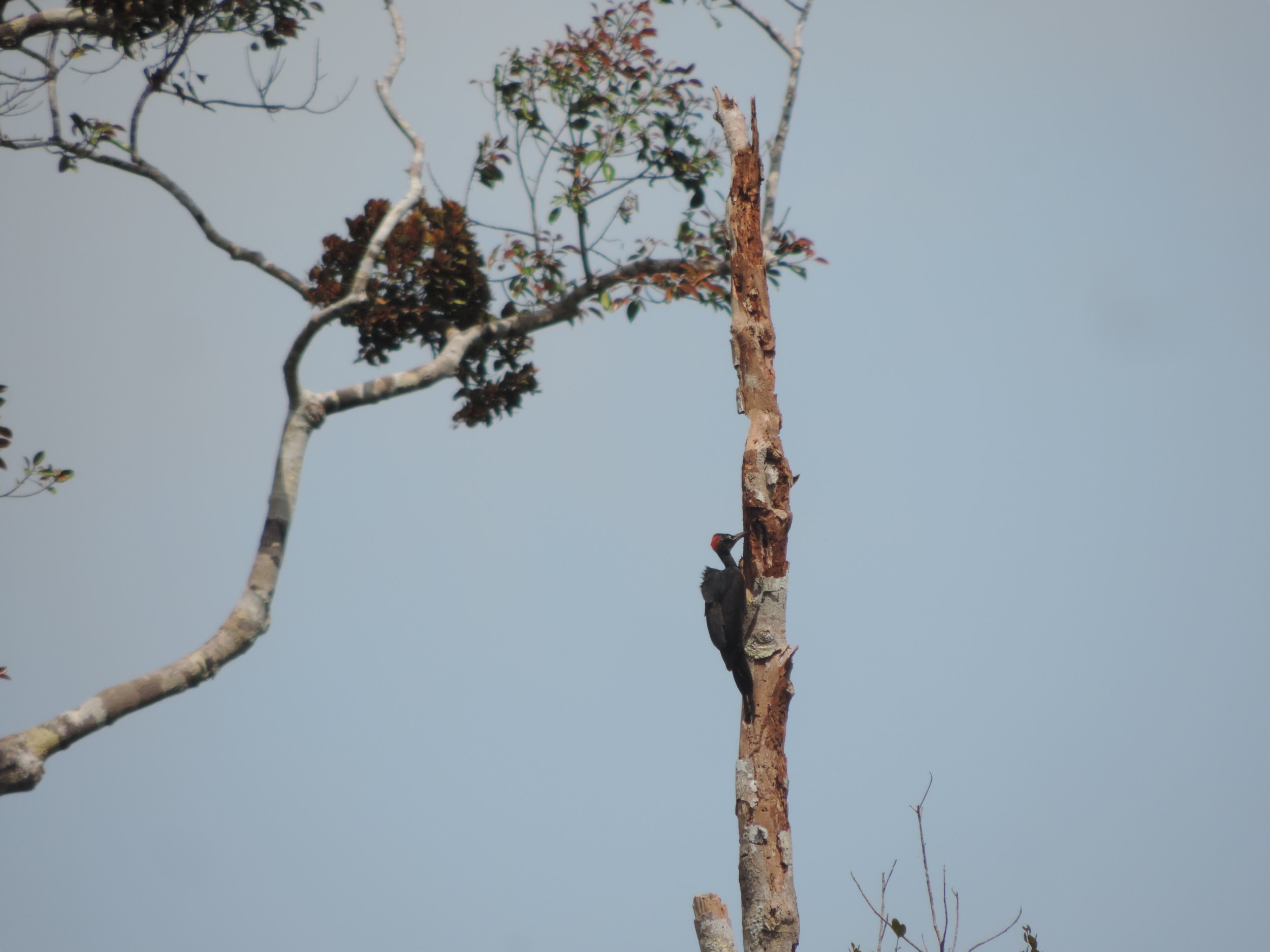
During regular patrols, the team record wildlife sightings like these recent images from Tanjung Puting National Park.
Habitat loss is the largest threat to orangutan populations today; for example, it is predicted that by 2080, between 70-80% of prime orangutan habitat will be lost in Borneo alone if current trends continue. The role of guard posts as a deterrent therefore is vital to ensure intruders do not encroach or enter these parks illegally, damaging or degrading the environment which is essential for orangutans and other wildlife.
Fire fighting is another important role in the field that make these outpost sites so vital. Each one is prepared with fire fighting equipment, and the Foundation works closely with training and supporting the team to be vigilant in spotting forest fires and then safely extinguishing them with as little damage to the habitat as possible. These fires are a potential threat year on year, in 2015 for example an area the size of Wales was lost to forest fires alone in Indonesia, so to have our team patrolling these sites is of paramount importance to orangutan protection and the surrounding area.
We are incredibly grateful to have such a skilled and hardworking team here at the Orangutan Foundation, but they still require support. Find out how you can help from as little as £2.
Have your donation doubled for free and support Borneo's wildlife conservationists
From 28th November until 5th December you can DOUBLE your donation through the Big Give Christmas Challenge, at no extra cost to yourself. Click here to donate and double your impact to support our work. This year our we are raising funds to inspire Borneo’s future conservationists. In this clip Arie, Research Manager of Pondok Ambung, our tropical forest research station in Tanjung Puting National Park, explains why it is important.
We use camera traps to monitor the wildlife in the forests surrounding Pondok Ambung. Watch this short clip to see some of the species we’ve managed to capture on film!
To protect Indonesia’s biodiversity, future conservationists need to be encouraged and supported.
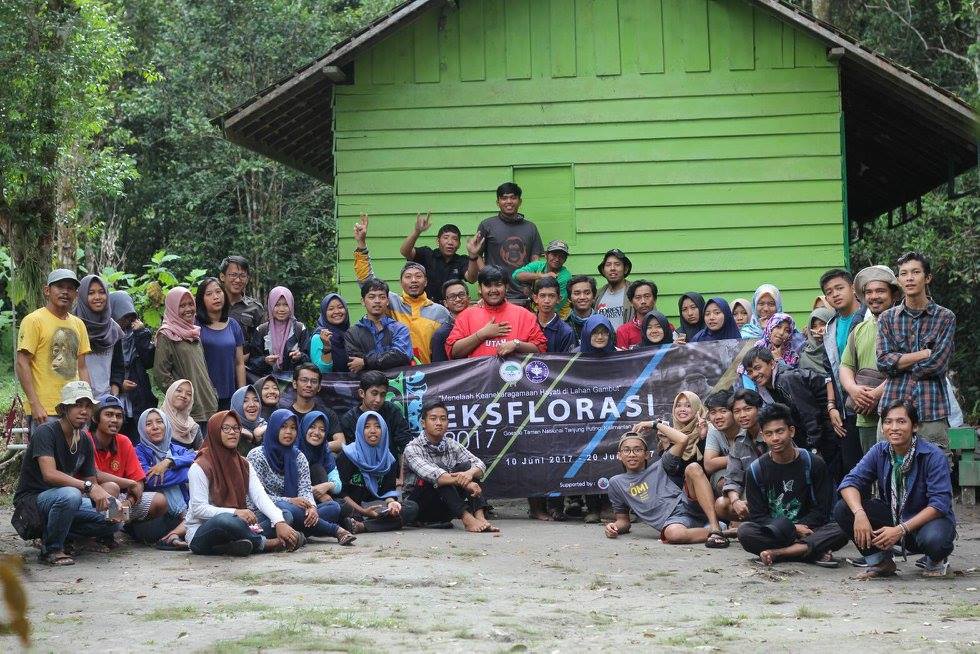
Our research station is a base from where Indonesian students and international scientists can conduct research. Take a virtual tour below:
Please help us to ensure a future for orangutans, forests and people.
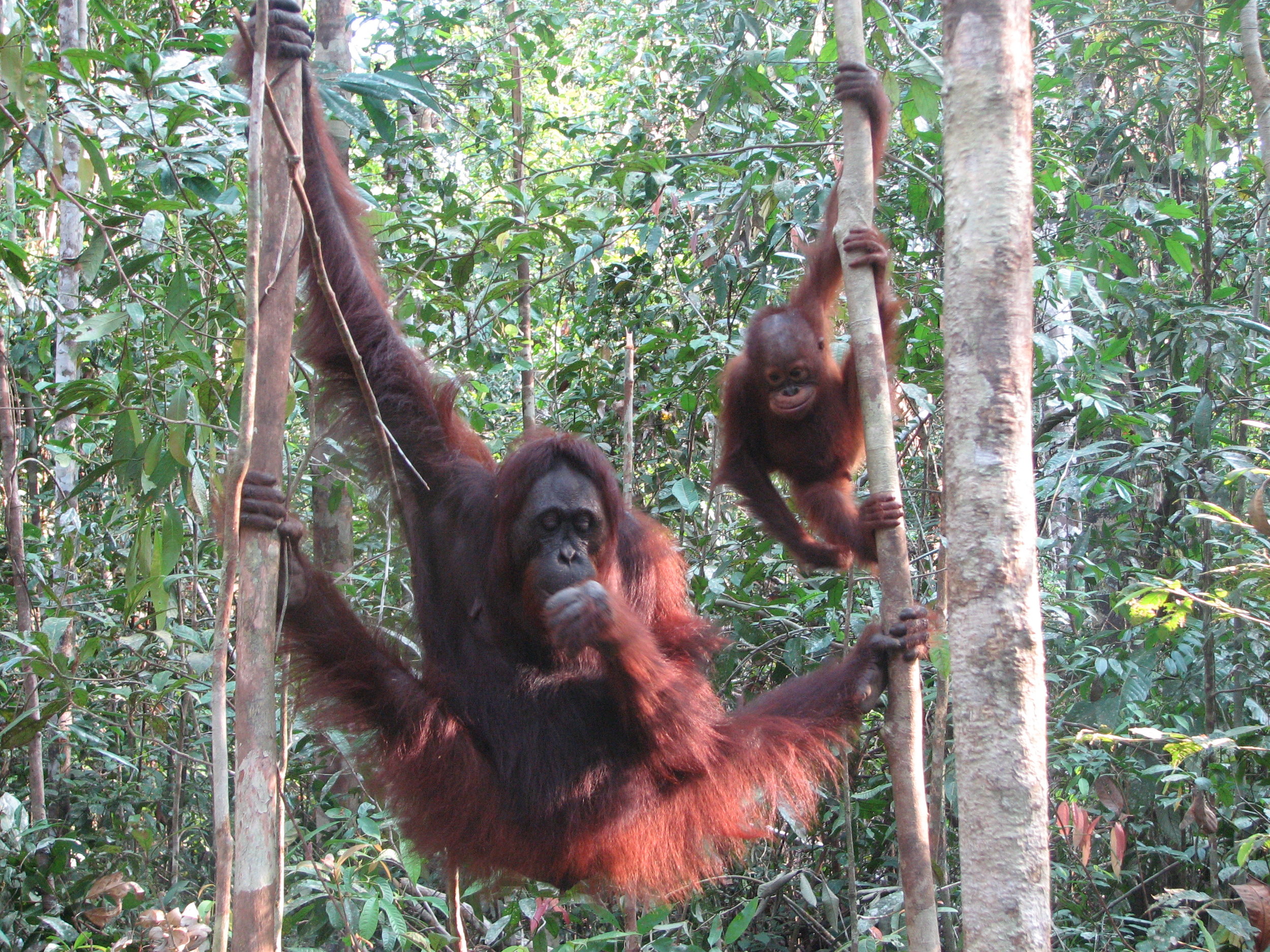
Thank you for your support. Click here to DOUBLE YOUR DONATION through the BIG GIVE.
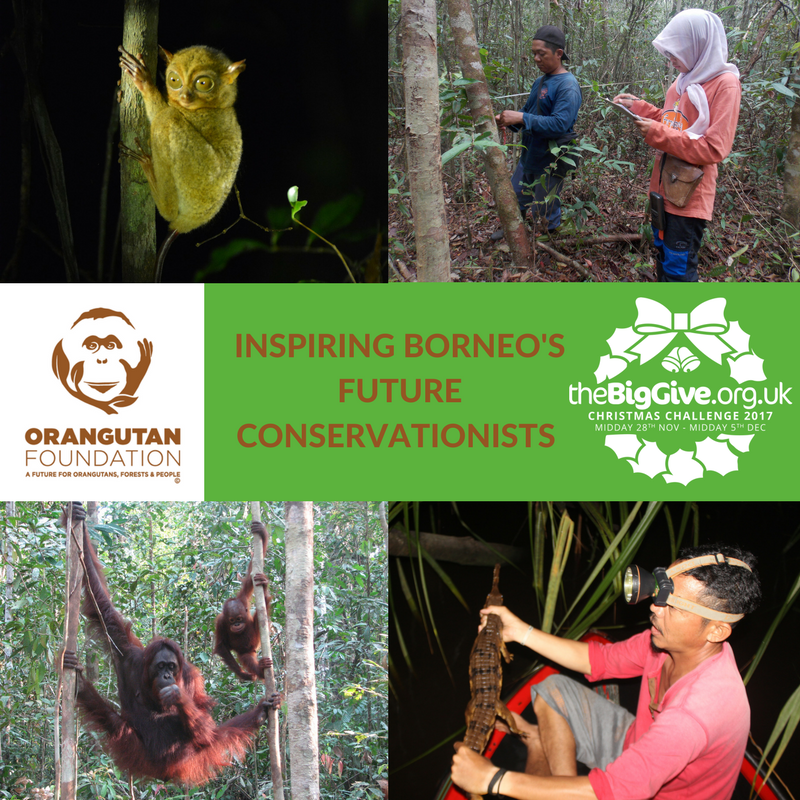
An interview with Jakir - Patrol Manager, Orangutan Foundation
To finish off Orangutan Awareness Week, our final blog post is about Jakir, who oversees the protection of the Lamandau Wildlife Reserve and its precious inhabitants. He has been in this role for 10 years. Jakir is also a talented photographer and many of his images have been included in our new photobook, The Orangutan's World. Our committed Indonesian staff are the bedrock of all we do. Please donate to support our vital work, keeping forests standing and orangutans in the wild.
Jakir, Patrol Manager Orangutan Foundation
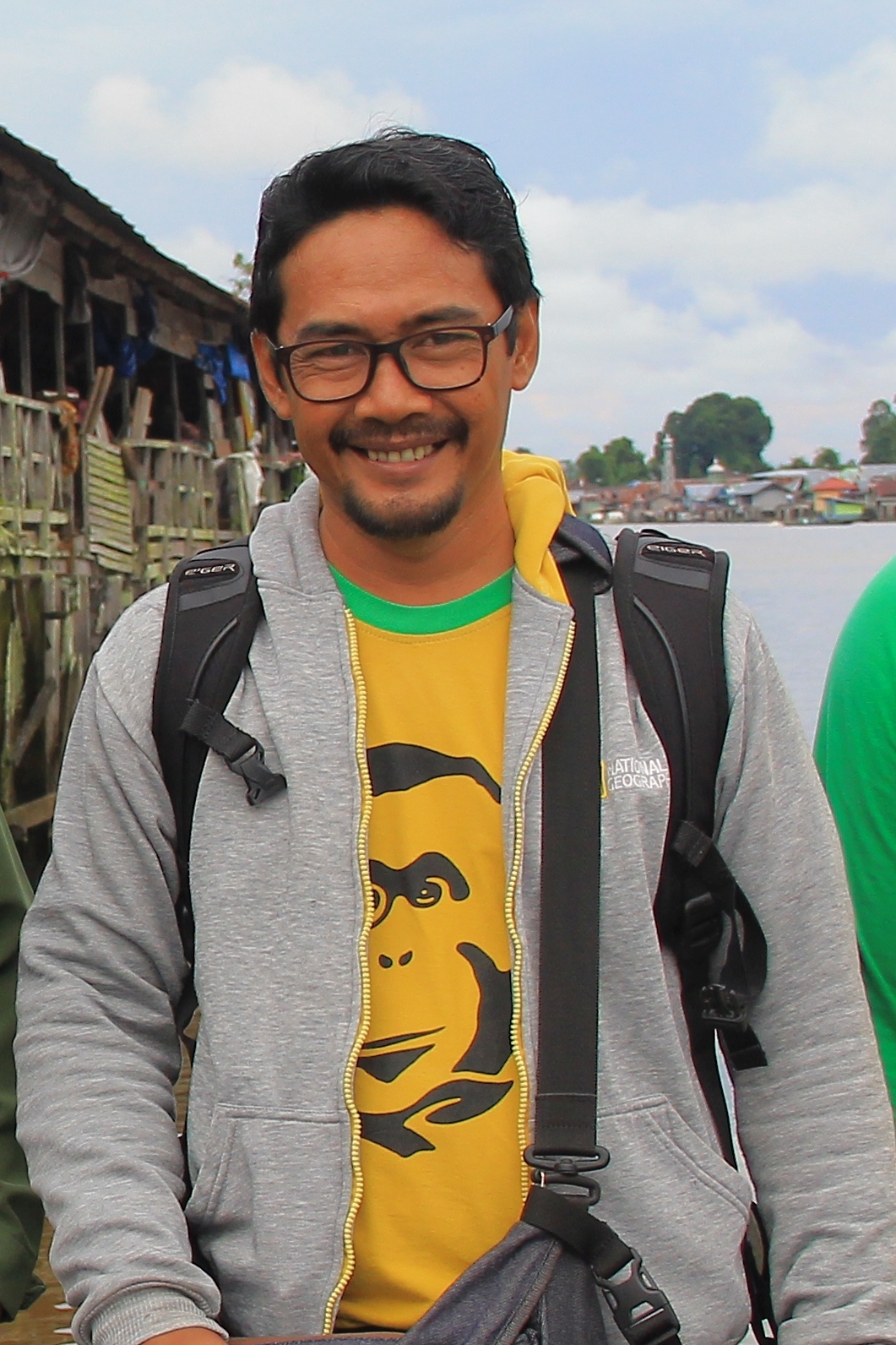
My role as Patrol Manager is to supervise the 12 staff who occupy our eight guard posts, ensuring that they are well maintained and operated, so that the wildlife reserves are protected from illegal activities, such as logging, mining, hunting and fishing.
It’s a very important role and I most of all I love the interaction with the local community in the field. Sometimes ignorance is the reason for illegal activities, and we tell people what we are doing so they also understand why we are protecting the forest.
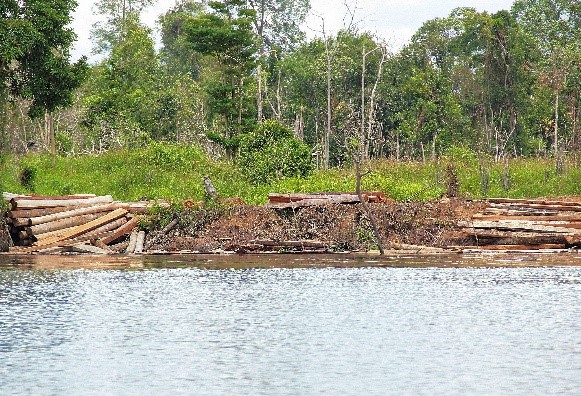
But the biggest challenge is facing people who deliberately do illegal activities. We have faced threats and bribes, but some people who were previously involved in illegal forestry now give us information on illegal activities they encounter.
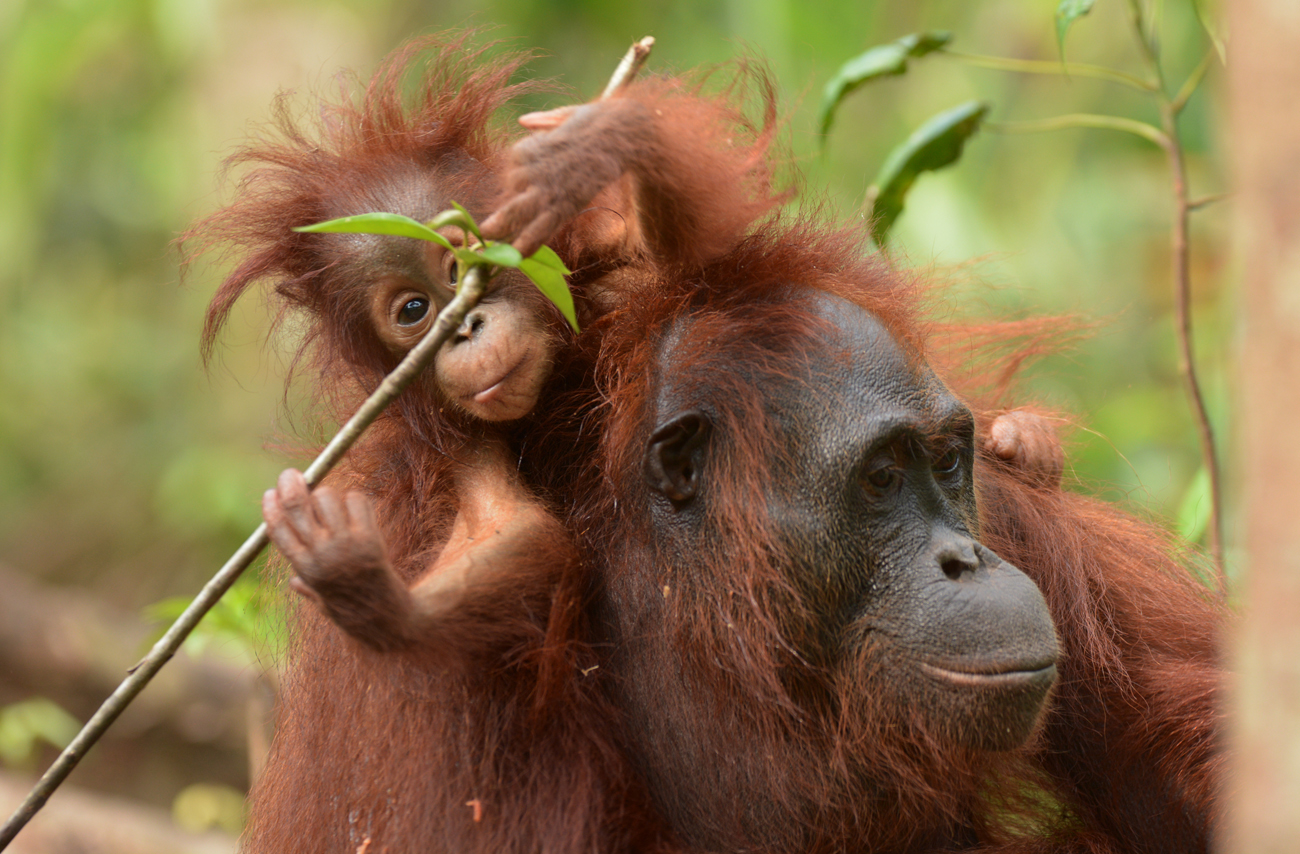
It’s very special to see some of the animals that we have saved roaming free in the forest in Lamandau.

When I first met Ashley, the Director of the Orangutan Foundation, I didn’t understand why she talked so much about protecting the forest and sacrificed so much of her own time for this. But a long time afterwards I saw some villages submerged by flooding and I realised why protecting the forest is so important.
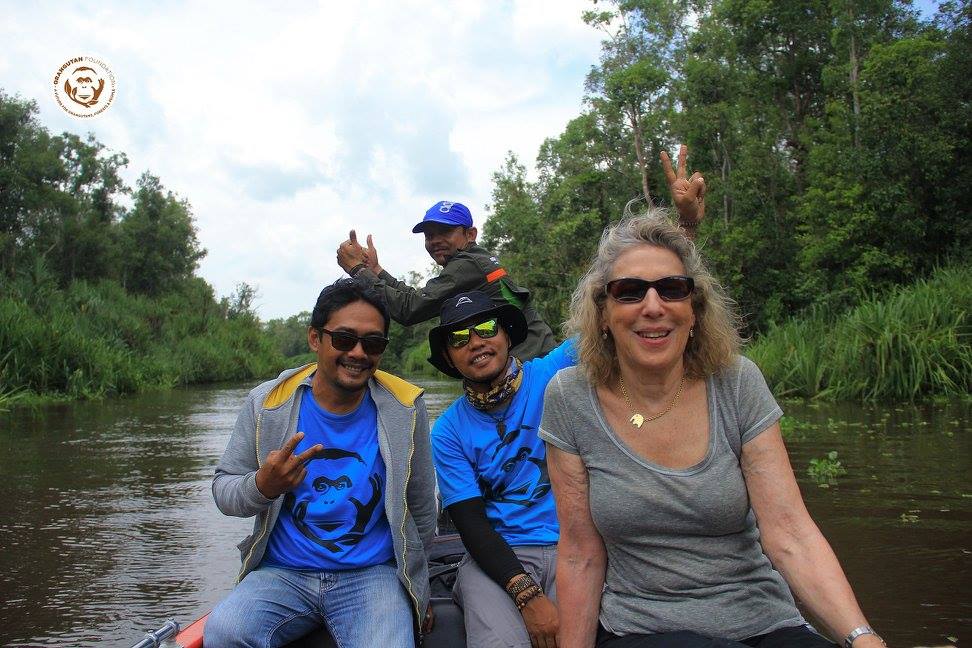
My hope is that the forest will always be alive and awake, so that my grandchildren can see and feel the coolness of this forest.
Written by Anna Levin, this interview was featured in our latest member's newsletter, Red Ape, Autumn 2017.
By donating £16.50 a month you can become a Guardian of the Lamandau Wildlife Reserve and support the protection of over 150,000 acres of tropical forest habitat. Click here to find out more.
Meet Kotim the orangutan
It is Orangutan Awareness Week and each day we will bring you a story about the orangutans in the Lamandau Wildlife Reserve. Thanks to your support we are protecting their forest home the Lamandau Wildlife Reserve and keeping them wild and free. Kotim
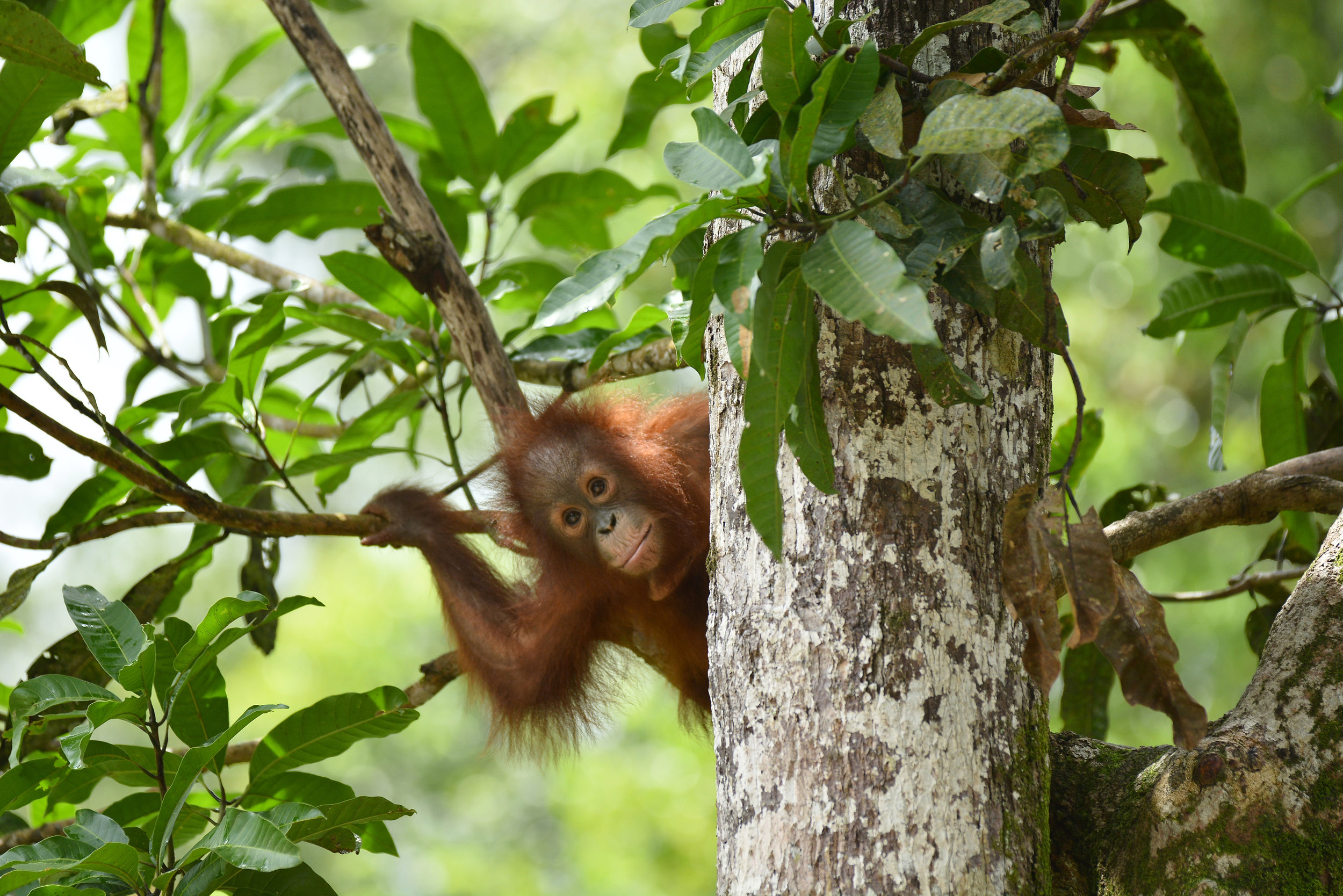
Kotim was rescued in 2014. She was handed over to Orangutan Foundation after being illegally kept as pet. Sadly, we can only assume that her mother was killed.
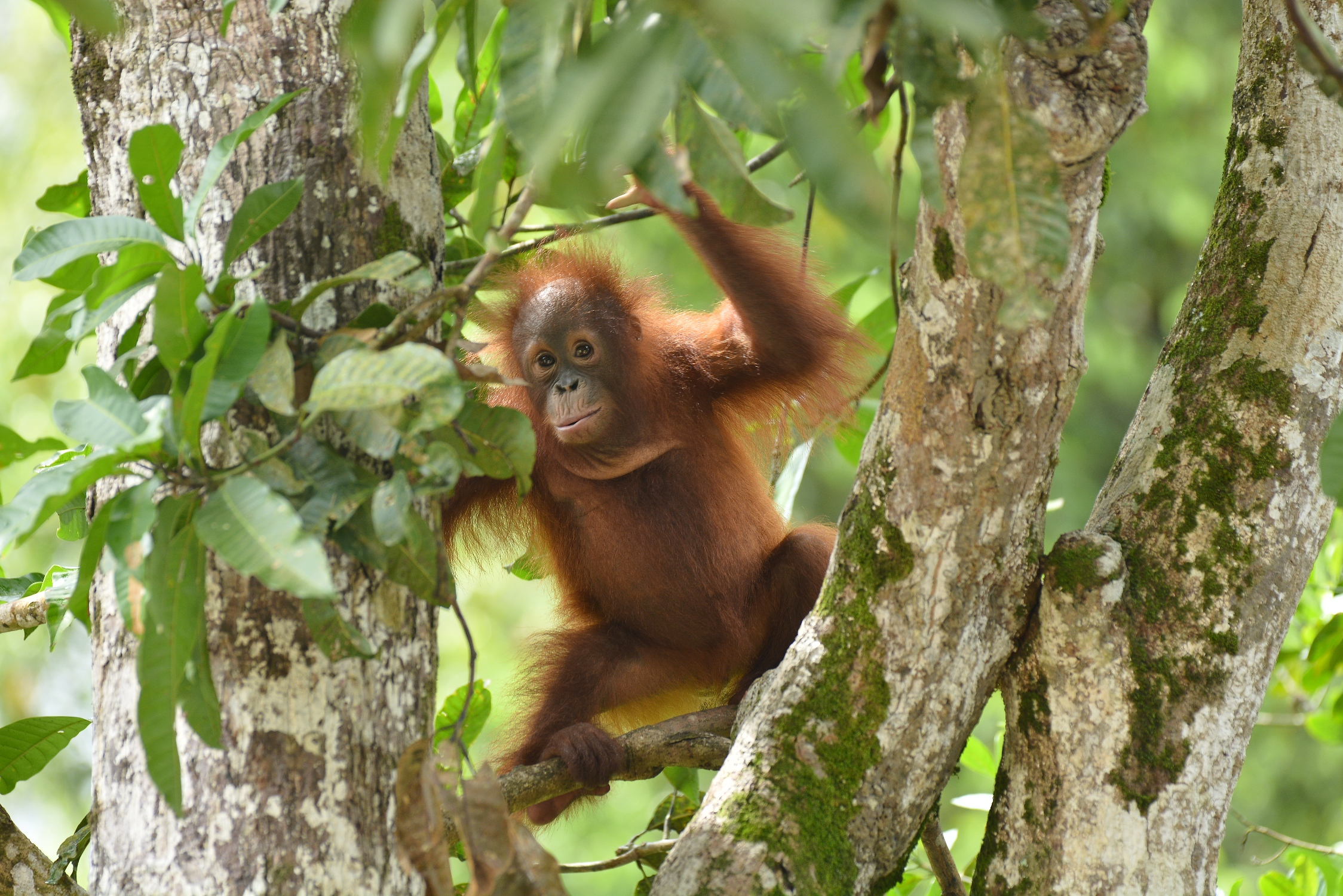
At three-years-old Kotim was too young to be released back into the wild and so entered into the care of our Soft-Release Programme, at Camp Rasak in the Lamandau Wildlife Reserve, Indonesian Borneo. Kotim joined another infant orphan, Torup. They became playmates and together practised their nest-building and climbing skills.
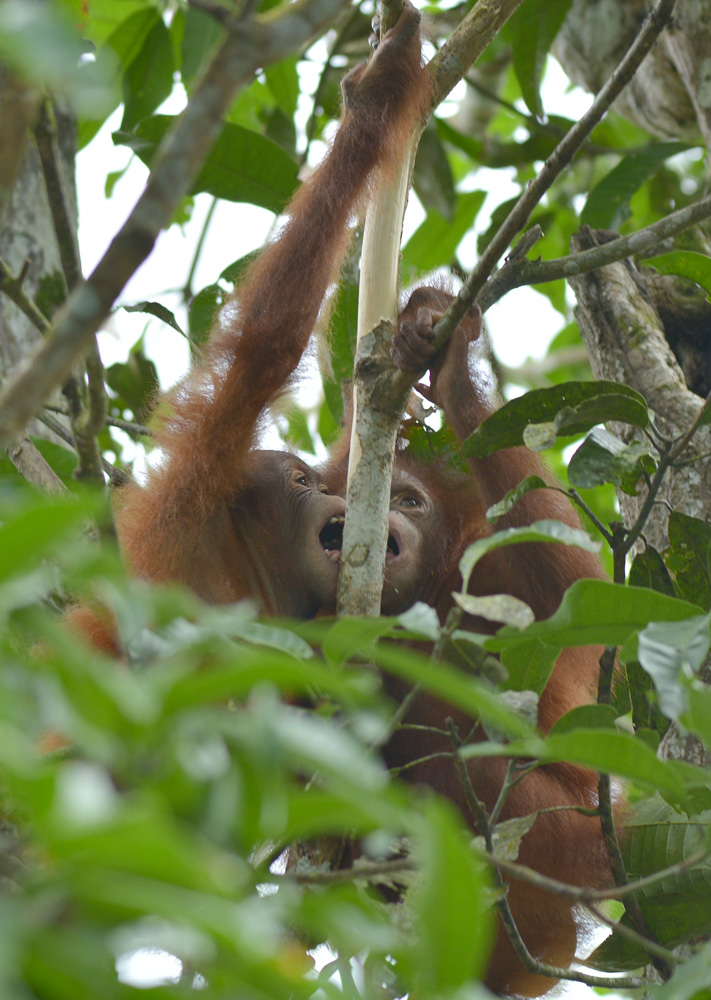
By April 2016, Kotim was deemed to have all the skills needed to survive in the forest and was successfully released. She is still occasionally seen by Orangutan Foundation staff. In December 2016, Kotim was seen with adult female orangutan Acuy and her infant, Ariel.
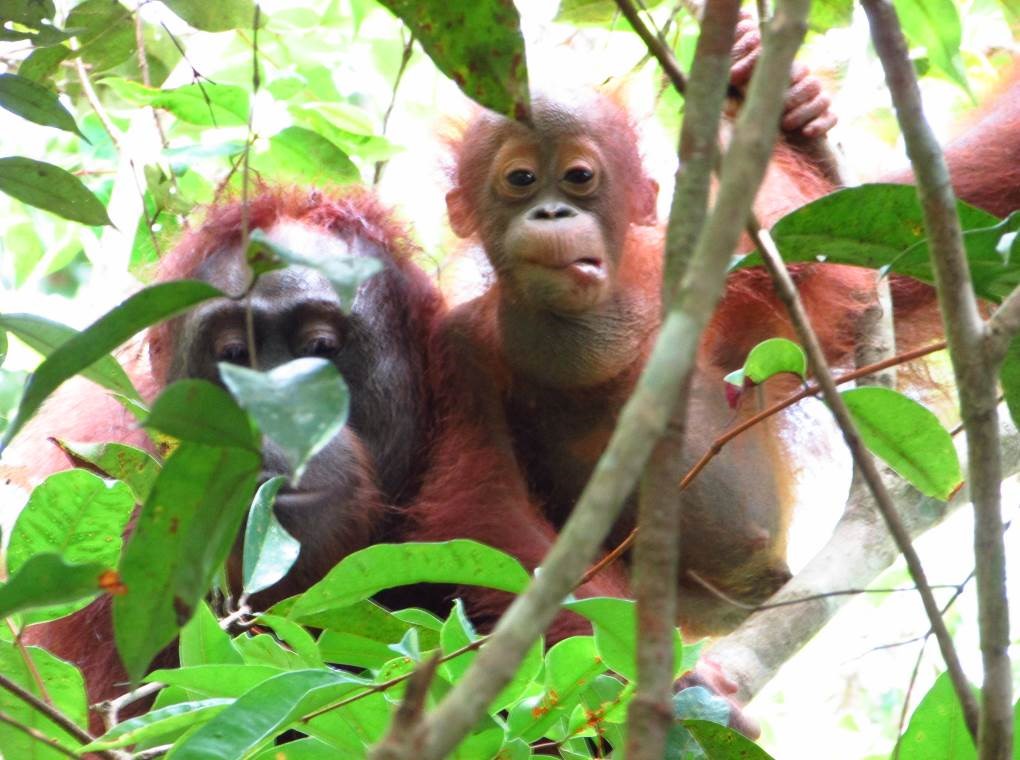
Support Kotim during Orangutan Awareness Week. Please donate to help us protect her tropical forest home. Keep forests standing and orangutans in the wild.
Please donate here.
Here's a video of Kotim whilst under our care in our Soft-Release Programme:
Why Orangutan Foundation needs your support, more than ever.
If you are a member or supporter you will already know that our priority is protecting orangutan habitat. If we keep forests standing we can ensure orangutans stay in the wild (see video below of wild male). In the past few months our committed Indonesian staff, working on the front-line of conservation, have successfully:
- Detected and prevented illegal activities within two protected areas, home to thousands of Bornean orangutans and many other critically endangered or threatened species.

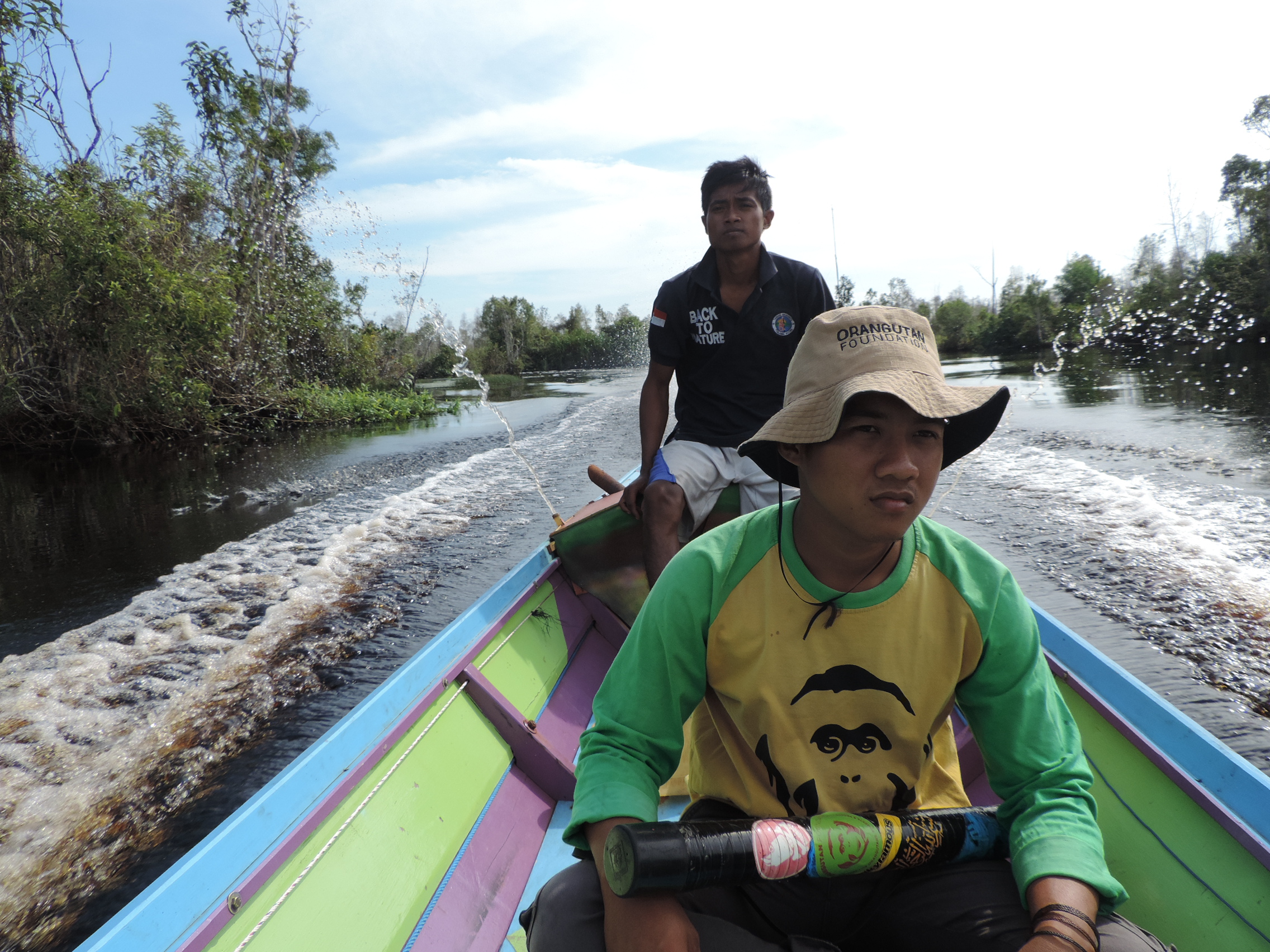

- Prevented the spread of fires to the Lamandau Wildllife Reserve, home to an estimated 500 Bornean orangutans.
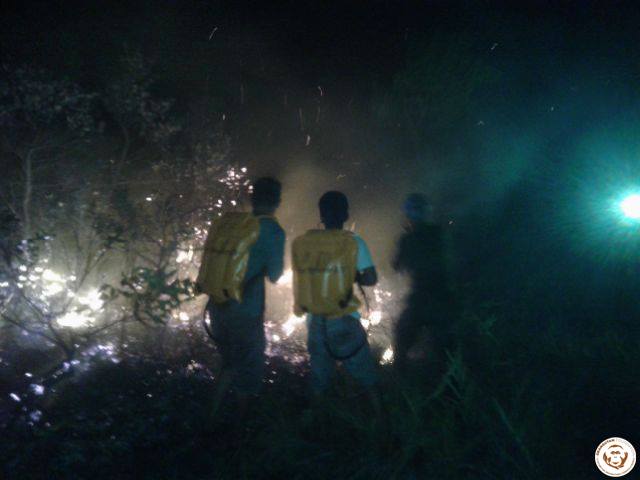
- Nurtured tens of thousands of tree saplings and planted in degraded forest areas of Tanjung Puting National Park and the Lamandau Wildlife Reserve.


- Trained our staff and community to prepare for and tackle fires
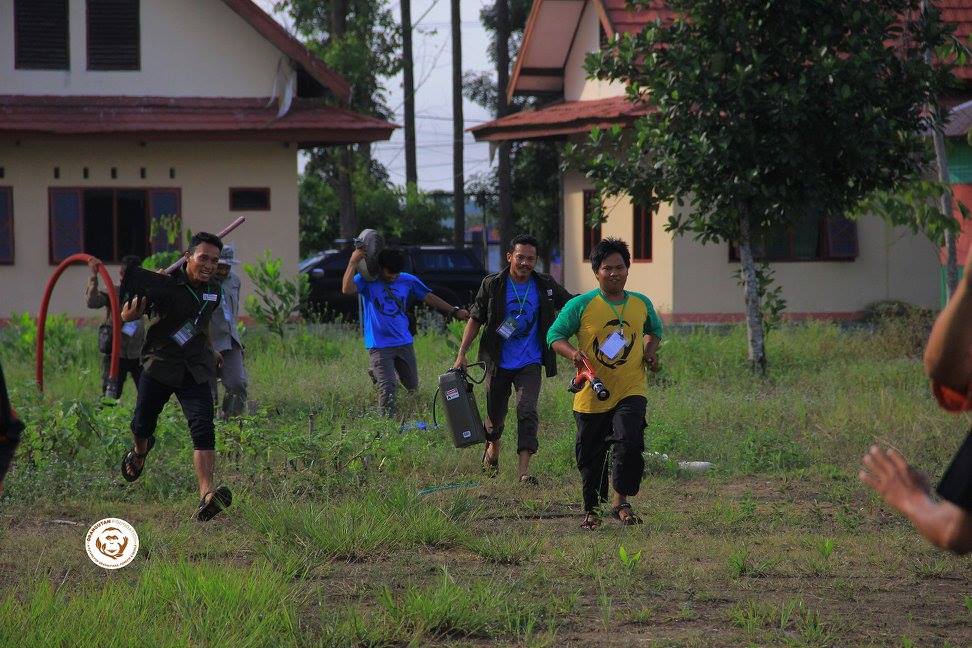
- Engaged with the Indonesian government and companies to implement best forest management in unprotected orangutan habitat.
We do all this so that wild orangutans, like the one below, stay wild.
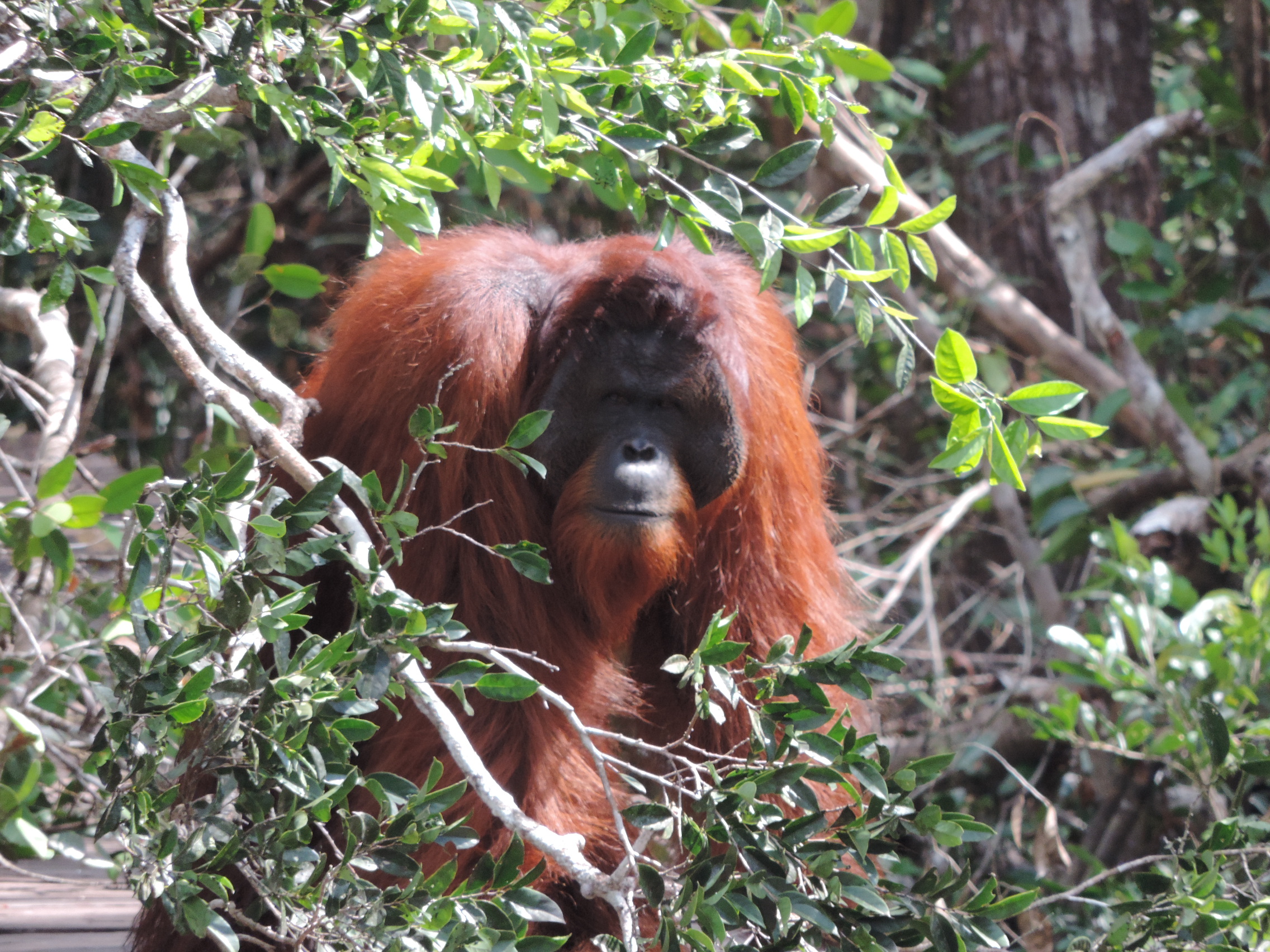
We need your help to continue doing this. If you haven’t already, please consider setting up a regular donation click here to support our vital work. Please also help by sharing this blog post.
Thank you,
From Orangutan Foundation - A future for orangutans, forests and people.
Severely Malnourished Male Orangutan Rescued from Fragment of Forest in Indonesian Borneo
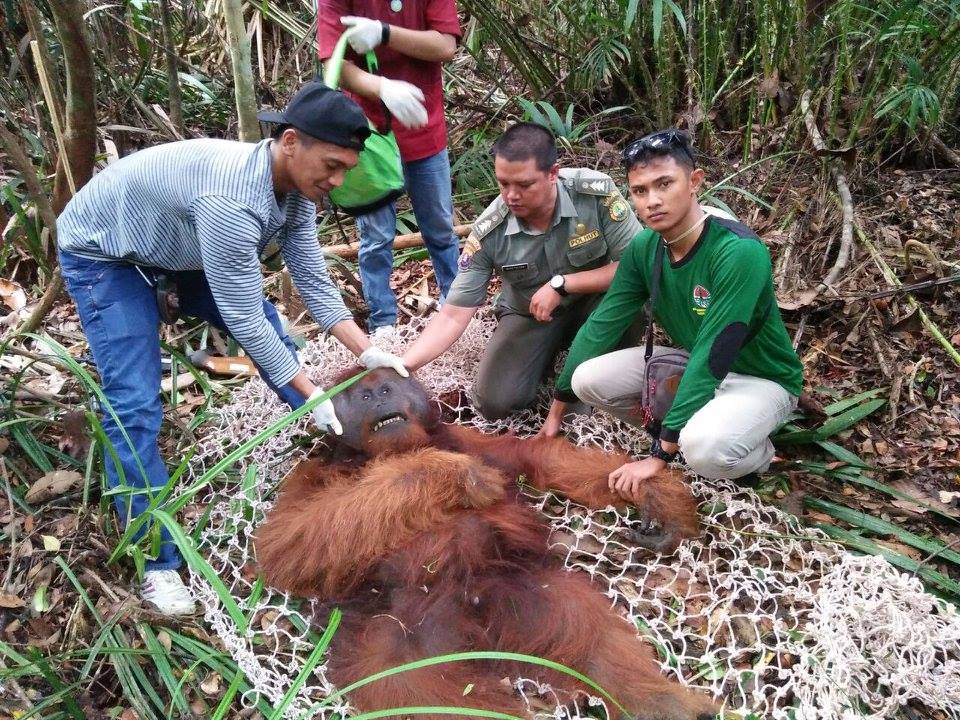 On Monday, 28th August 2017, Orangutan Foundation together with the local wildlife authority, managed to rescue an orangutan, found stranded in a forested area between a village and an oil-palm plantation in Central Kalimantan. The orangutan, an adult male of around 17 years of age, only weighed 80kg - about two thirds its expected weight..
On Monday, 28th August 2017, Orangutan Foundation together with the local wildlife authority, managed to rescue an orangutan, found stranded in a forested area between a village and an oil-palm plantation in Central Kalimantan. The orangutan, an adult male of around 17 years of age, only weighed 80kg - about two thirds its expected weight..
The alarm was raised by one of the villagers, who, seeing the orangutan so close by, was worried the orangutan would destroy his oil-palm plantation, and even enter his own home.
The challenging terrain made it difficult to reach the orangutan. The team had to use a boat to approach the area and then walk about 1km through swamp forest. On arrival, the orangutan was anesthetized to take it to a point of safety.
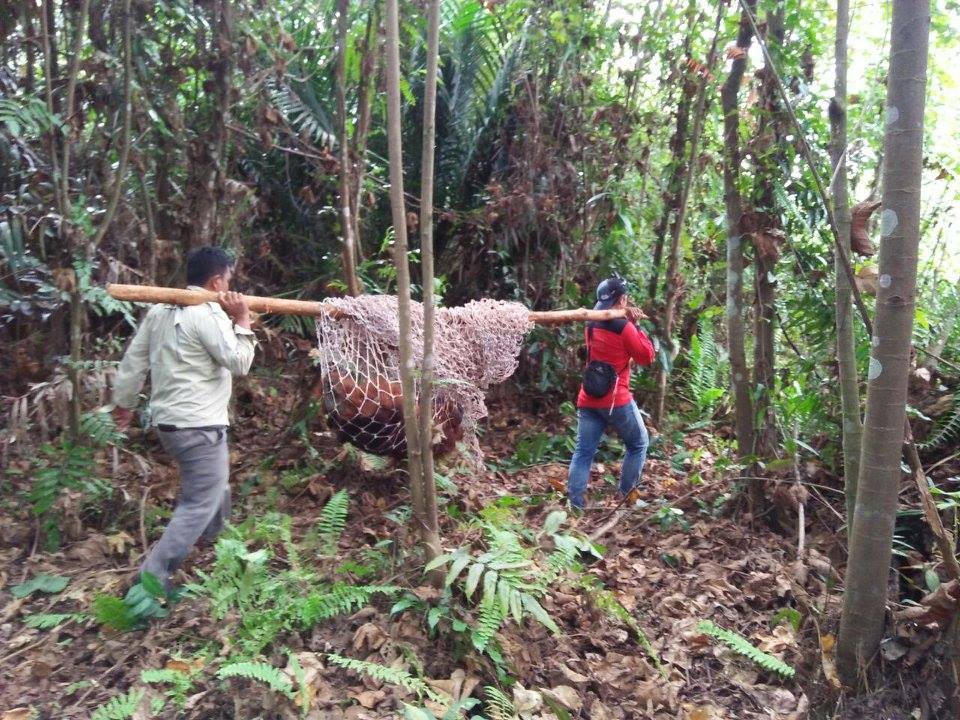
This rescue highlights the problem of habitat loss resulting in more wildlife coming into human contact, leading to human-wildlife conflict.
The orangutan will be examined by the Orangutan Foundation’s vet, and then translocated into the Lamandau Wildlife Reserve, a protected area on 30th August.
To date, 15 orangutans have been rescued in 2017, some being immediately translocated and others, too young for release, will go into the Foundation’s Soft-Release Programme. Please donate to support our rescue and release programme.
The Lamandau Wildlife Reserve
We are delighted to be able to convey the news that two of our soft-release orangutans, Jessica and Ketty, have now been released into the Lamandau Wildlife Reserve. Staff are confident both will go on to living fulfilling lives in the wild, free from the threat of habitat loss.


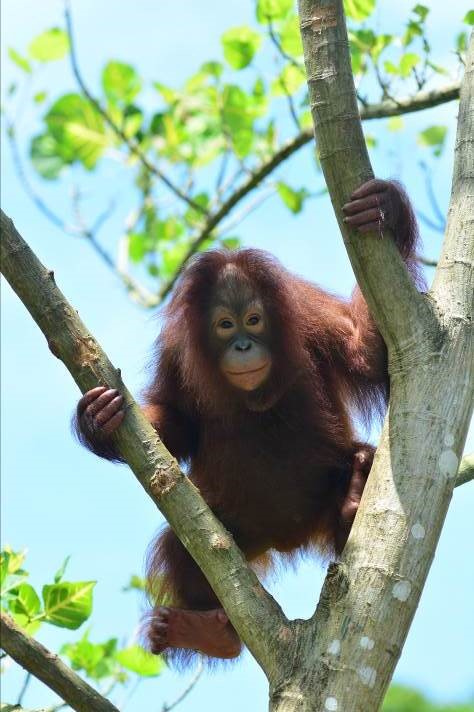
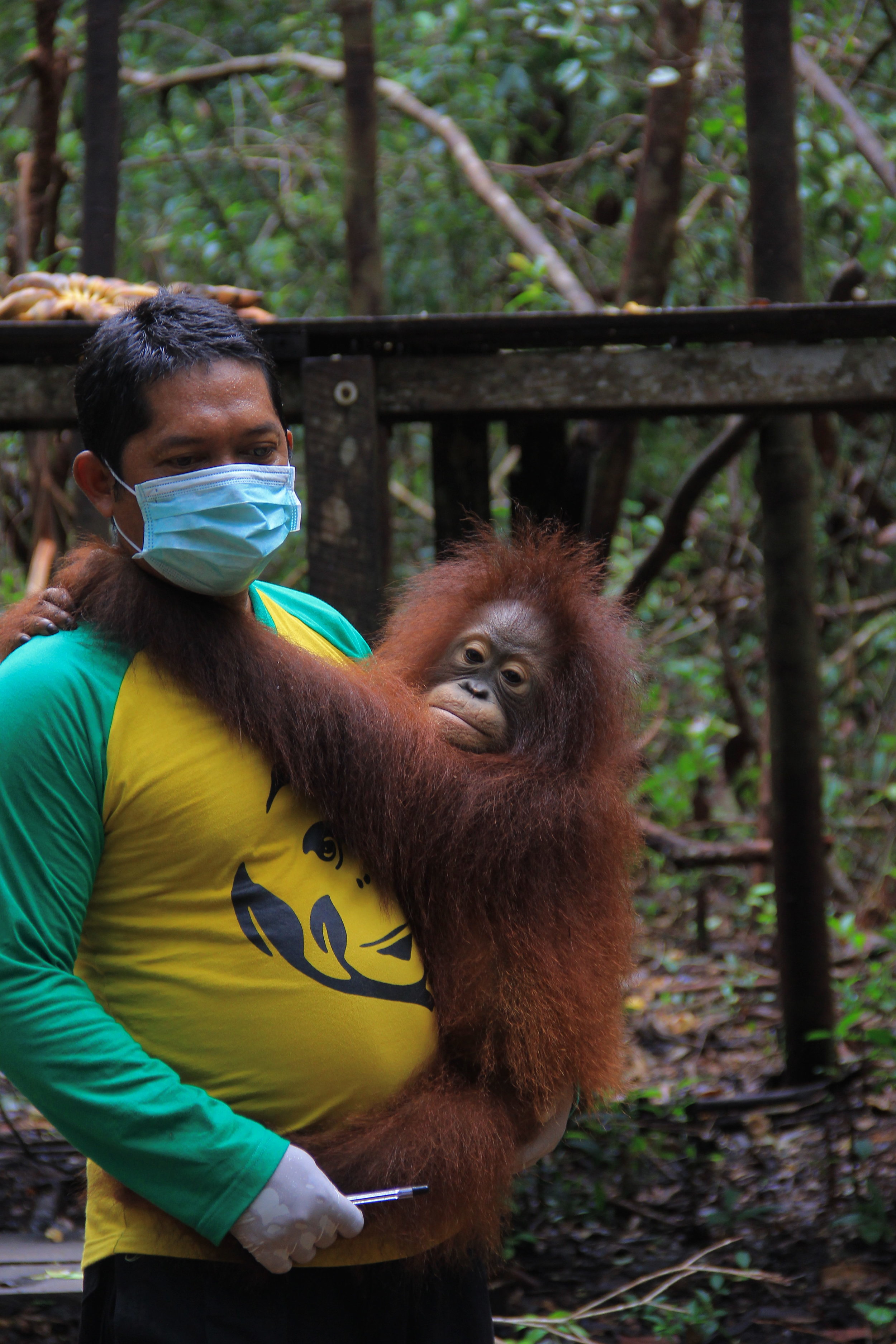
In light of this positive news and #RainforestLive, we are introducing a new initiative in support of the Lamandau Wildlife Reserve.
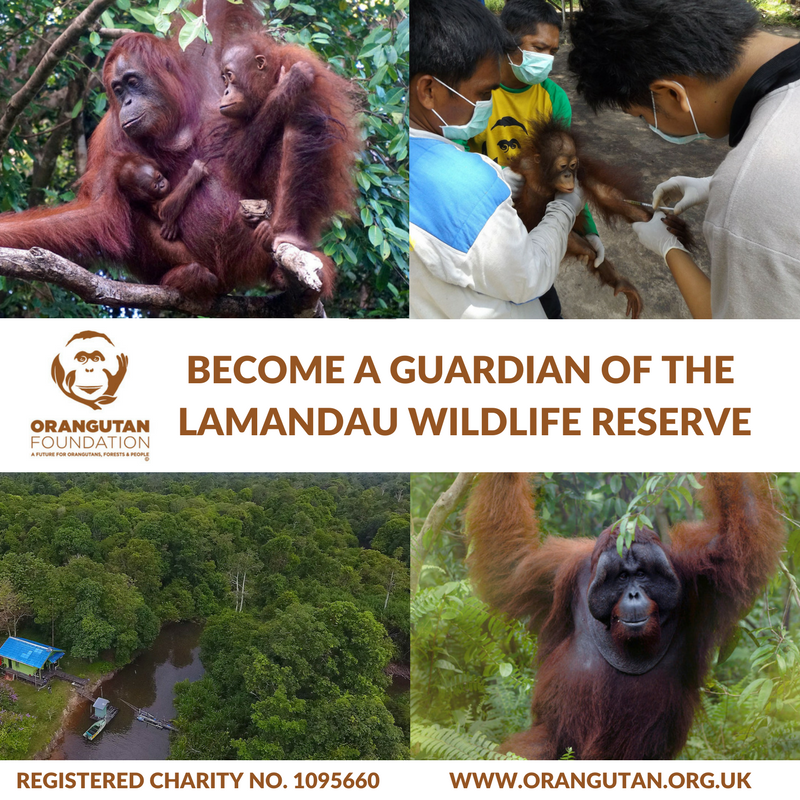
Become a guardian and actively protect:
- 158,144 acres of tropical peat forest in Central Kalimantan, Indonesian Borneo
- 500 critically endangered orangutans - a number which continues to increase as more are rescued and released
- thousands of threatened species including gibbons, sun bears and clouded leopards
- 5 million tonnes of stored carbon.
A regular gift of £16.50 a month or a one-off donation of £200 for the year (the equivalent of 55p a day) will contribute towards the management of the Reserve.
Visit our webpage for more information on how to become a guardian.
Rainforest: Live 2017
 This year we again take part in Rainforest: Live, a global social media event set up by Borneo Nature Foundation, with more than 50 organisations taking part.
This year we again take part in Rainforest: Live, a global social media event set up by Borneo Nature Foundation, with more than 50 organisations taking part.
Organisations will share a glimpse of rainforest life on social media to inspire people to take action and help protect these critical habitats.
WHAT TO WATCH OUT FOR: Rare and wonderful wildlife sightings direct from rainforests all around the world! Here's a clip we posted last year to give you a taste of what is to come:
You can learn more about the event here.
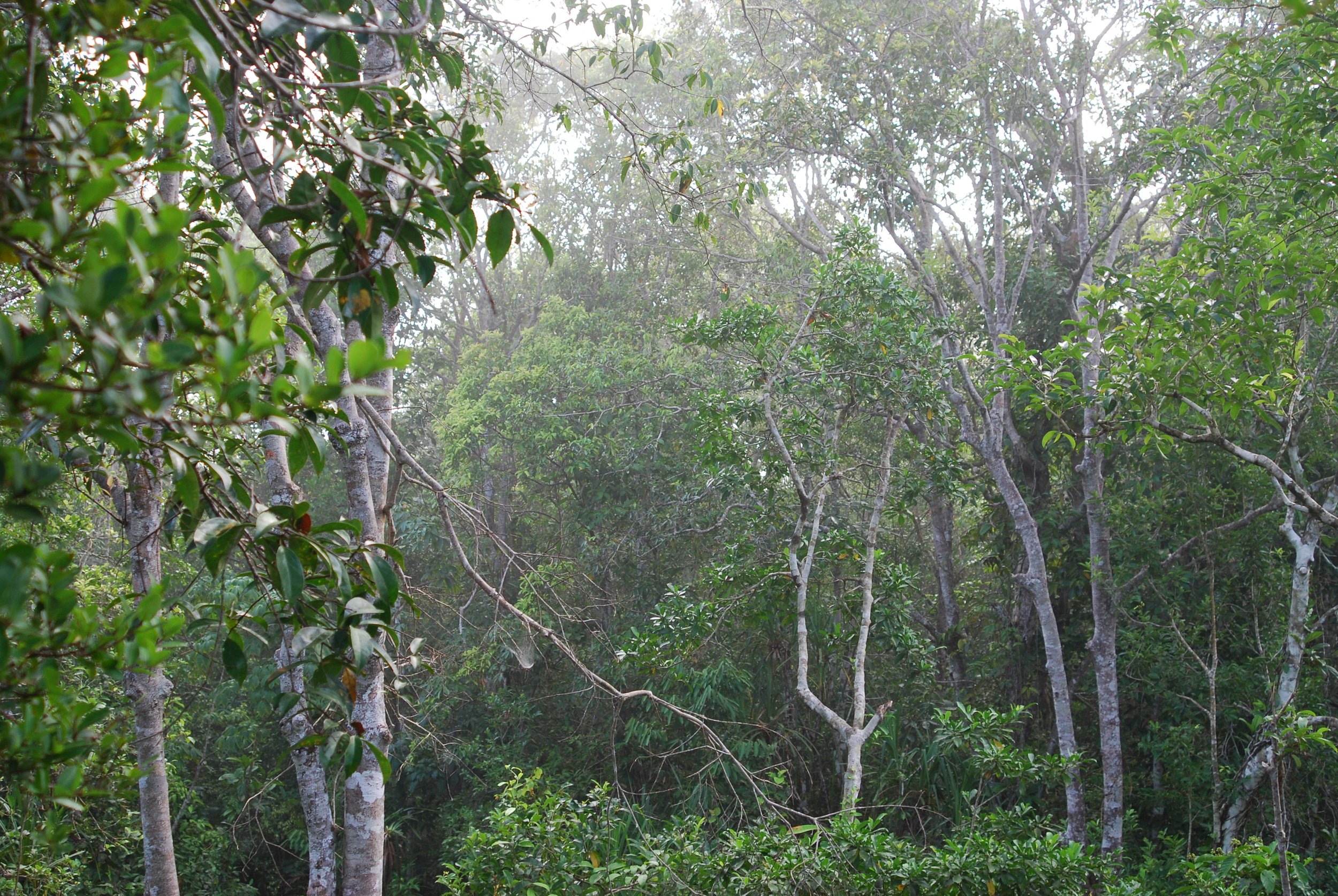
Rainforests once covered as much as 12% of the earth's landmass. They now only cover 5%, largely a result of human activity. Help us to protect the world's remaining rainforests, estimated to be home to as much as half of all species of flora and fauna found on earth, including the magnificent orangutan.
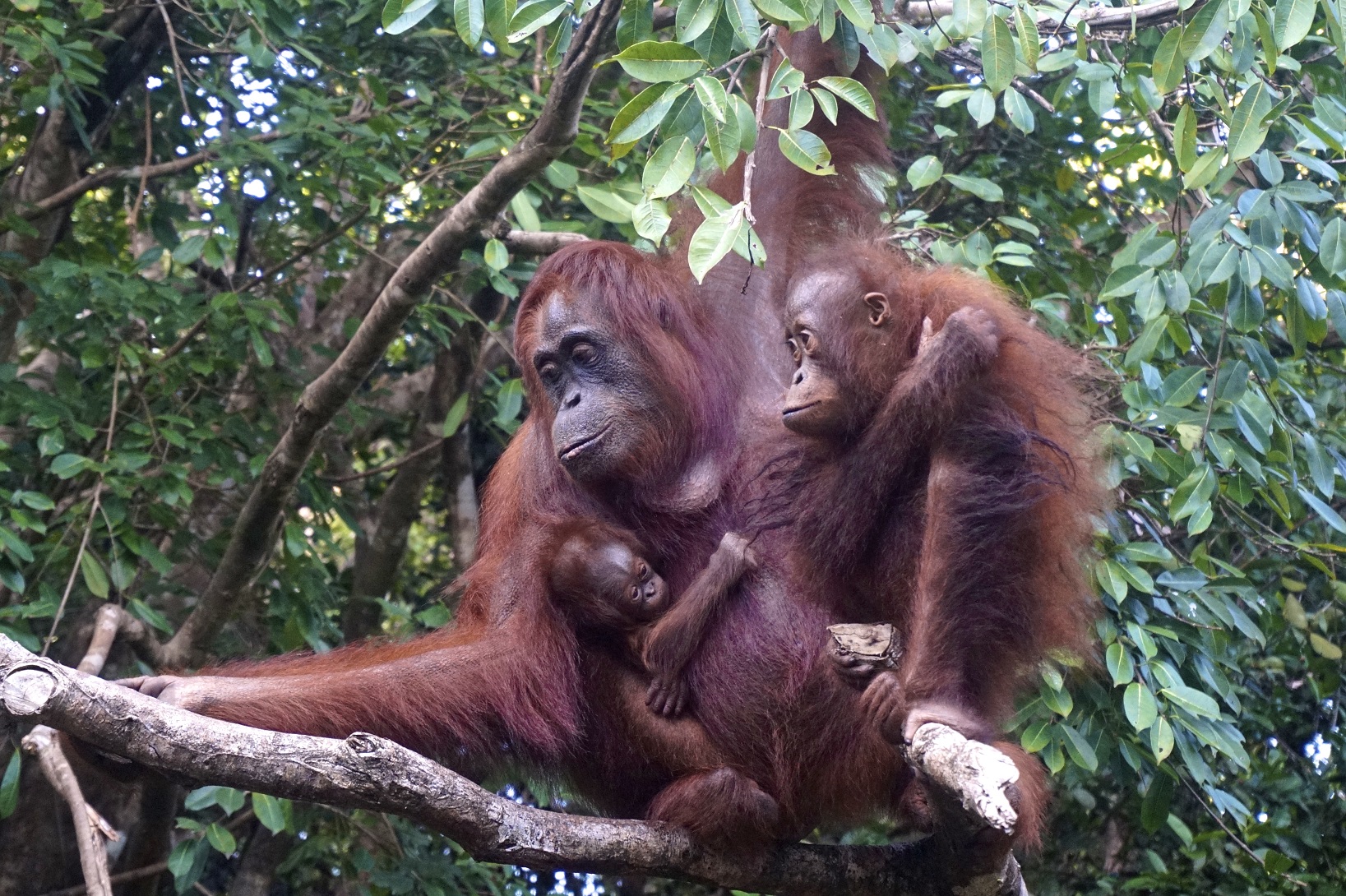
Join us tomorrow on Facebook, Twitter, Instagram, Tumblr and Pinterest and please show your support for rainforest conservation by getting involved – follow the hashtag #RainforestLive and share, like, retweet and comment!
The Orangutan Foundation's 5 Programmes in Indonesian Borneo
Watch this short video to learn about our 5 ongoing programmes in Indonesian Borneo:
Please help us ensure a future for orangutans, forests and people. To support our work with a donation, please click here.
Thank you.
Miners evicted from Wildlife Reserve in Borneo
Protecting the habitat of the critically endangered orangutan is our number one priority but also our biggest ongoing challenge - we have to prevent illegal activity. Last month, illegal gold and zircon miners were evicted from the Lamandau Wildlife Reserve, Central Kalimantan, Indonesian Borneo. This Wildlife Reserve provides a second chance of survival for orangutans that have been rescued from oil palm plantations or other areas where they are a risk.
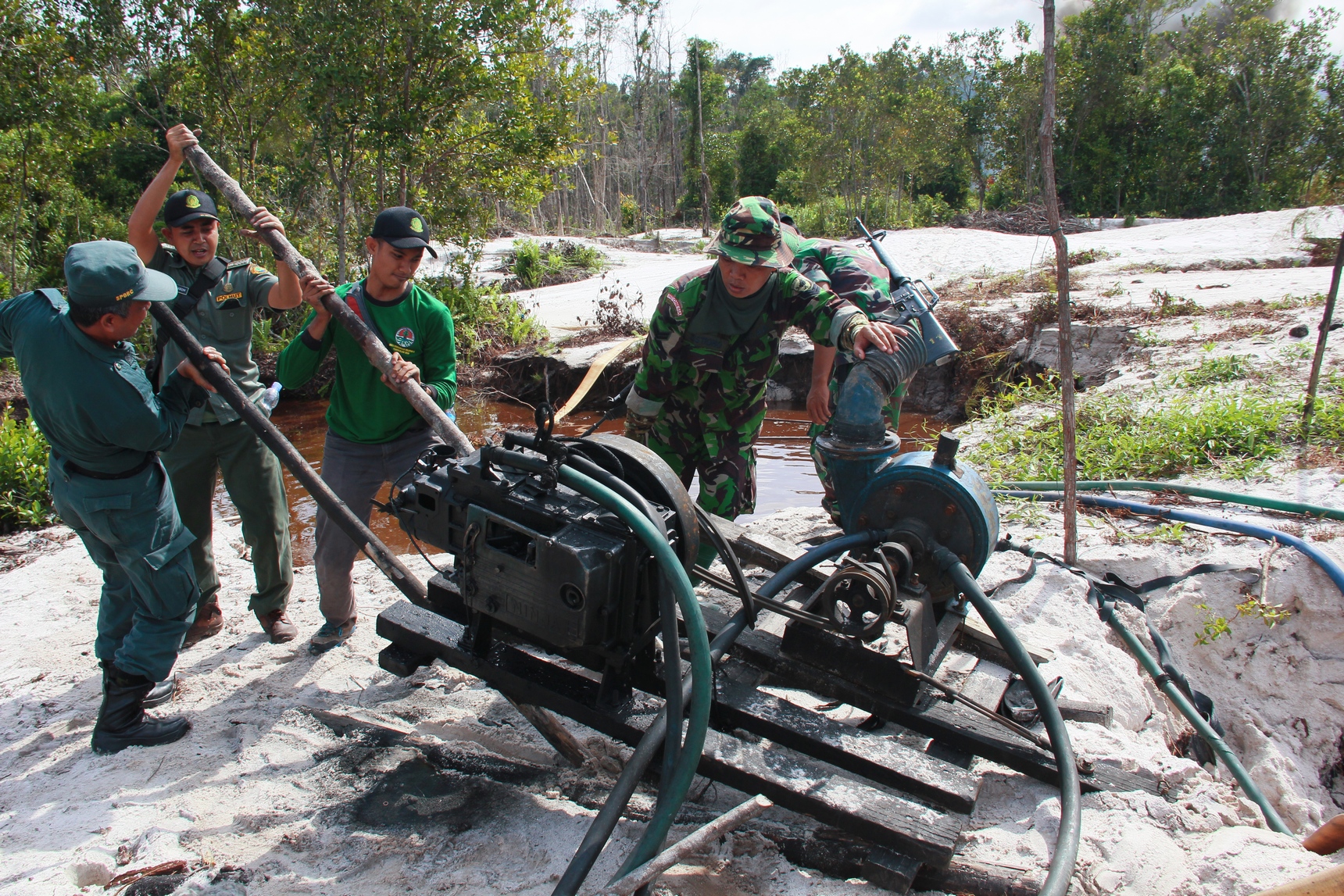
To protect the Reserve, Orangutan Foundation have built eight guard posts from which regular forest and river patrols are launched in collaboration with the Indonesian Nature Conservation Agency (BKSDA). It is a huge undertaking keeping the Reserve (64,000 hectares) free from illegal activity.

Illegal mining was first detected months ago, by the Orangutan Foundation’s forest patrol teams. Frustratingly, we do not have the authority to evict or stop the miners but can only inform them that they are acting illegally and gather evidence to report to BKSDA. To evict the miners and their equipment, the Forestry Police and Indonesian military are involved.

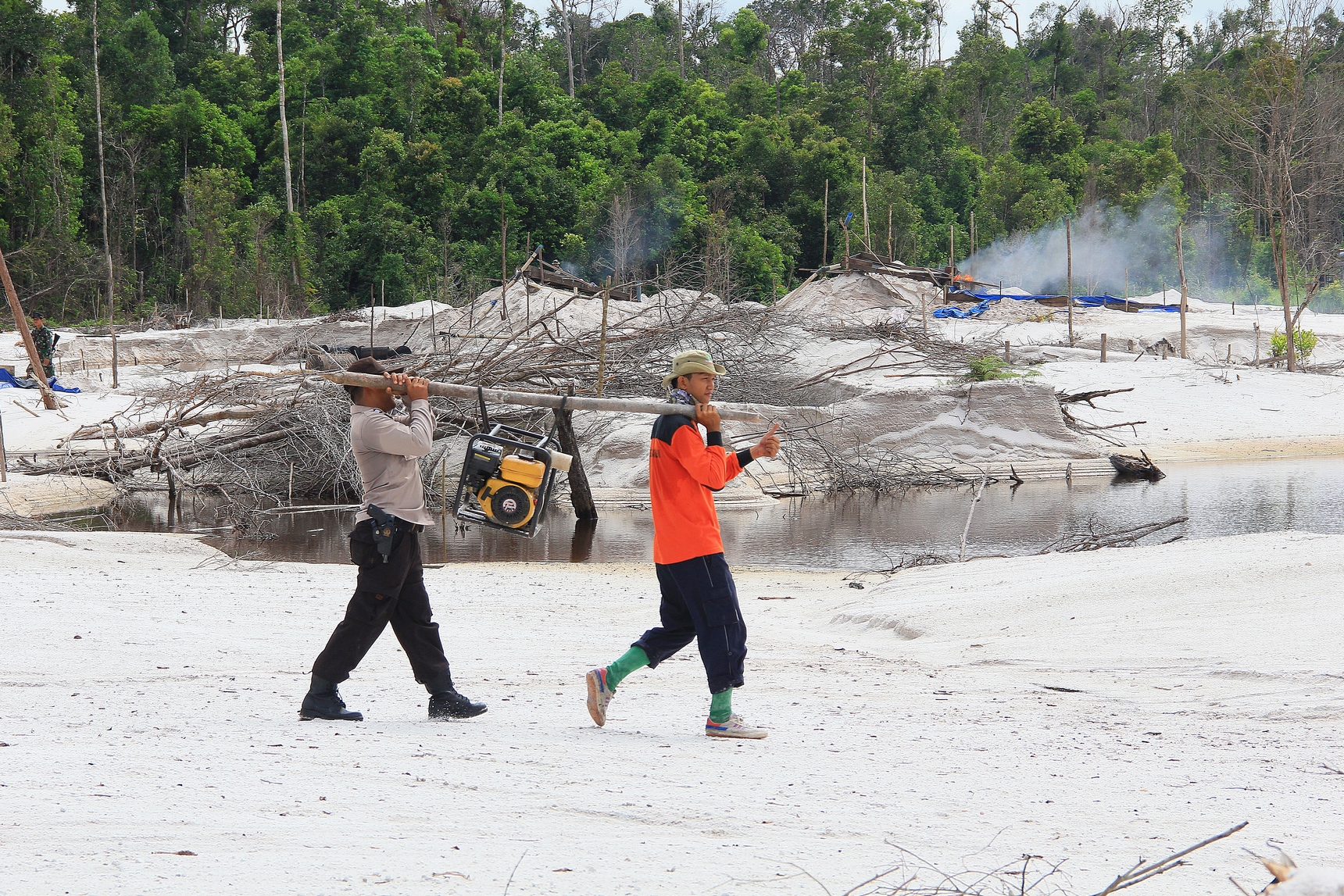
Thankfully the miners and their equipment are now gone. We remain vigilant and will try to prevent the miners starting up again.The mining process devastates the forest ecosystem, destroying orangutan habitat. If the Orangutan Foundation stopped actively protecting the Reserve then its precious wildlife and this globally important ecosystem, with huge stores of carbon, would very likely be destroyed and lost. Please help us to keep the forest protected. Click here to donate.
Thank you.
Orangutan Foundation
The True Guardians of the Forest
On the 30th April, Foundation staff ran their routine patrols. As most of you know, habitat protection is a core priority for the Orangutan Foundation: if the forests are not safe, neither are the orangutans. The use of guard posts and patrols to protect Tanjung Puting National Park and the Lamandau Wildlife Reserve from illegal logging, farming, mining and hunting has so far been extremely successful. Thus after hearing new reports of illegal logging taking place in Pos Rasau, Foundation staff hastily set out in a speedboat with 7 people from the BKSDA and the Department of Forestry, as well as 2 police officers.
Here they discovered the remnants of illegal logging activities.
Though the perpetrators were nowhere to be seen, they had left behind 12 planks of timber, and 12 types of wood varnish. In a nearby location, many more planks of timber were found, as well as the personal cooking supplies of the loggers, who had again evaded being caught by our patrols.
Yet while on the river towards Mangkung, our patrols found a group of people loading more planks of wood onto their boat.
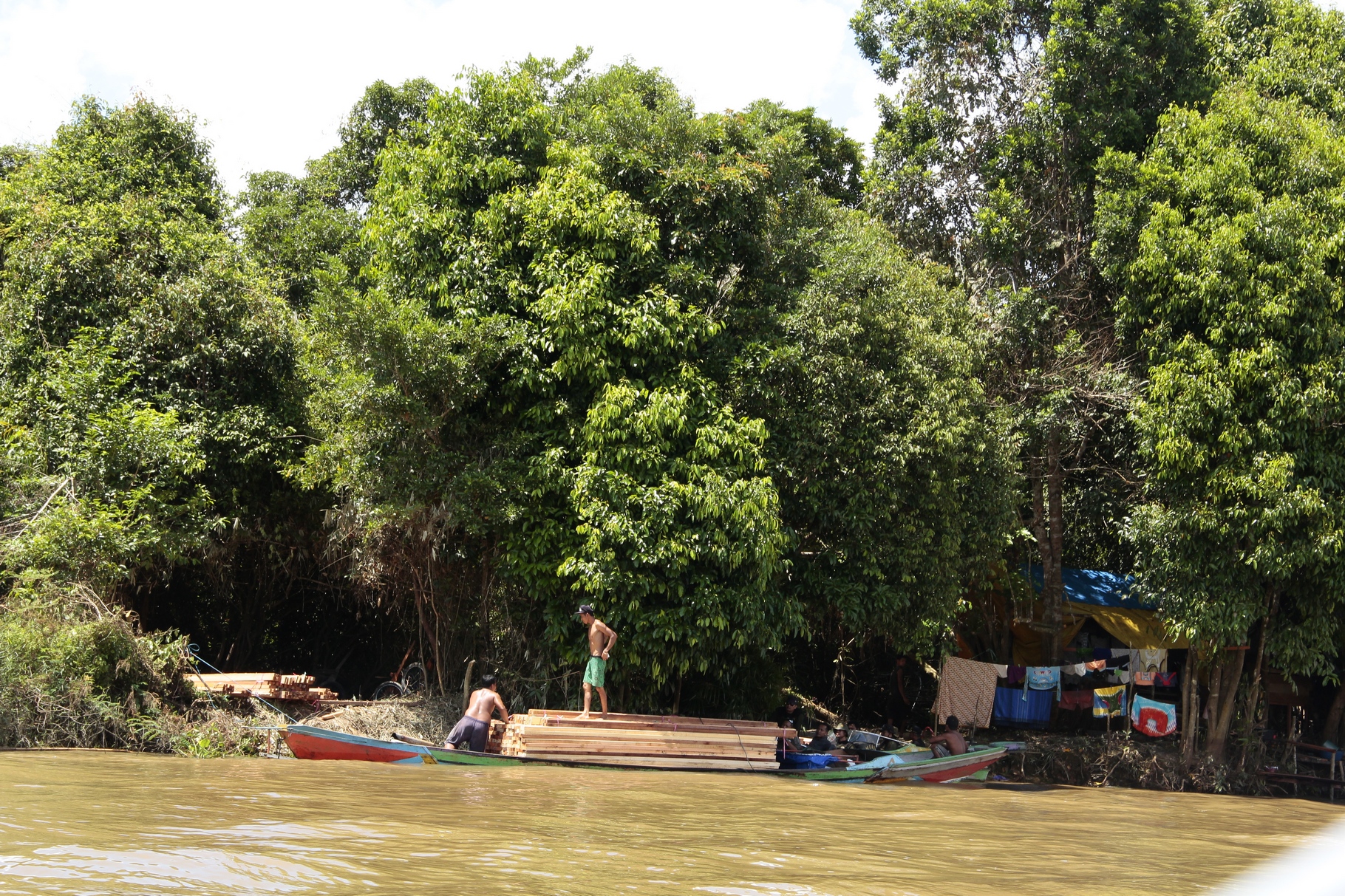
When they pulled up on site, the police and the Department of Forestry employees were able to order the workers to end their illegal logging in this location. Our patrols will continue to monitor this area in the weeks to come to ensure this order is taken seriously.
The Foundation is confident that thanks to our use of patrols, cases of illegal logging can be brought to an end before escalating any further in these critical areas of orangutan forest.
Now it's New Year, we look back with confidence, knowing that we have made a difference...
The Foundation works in three areas of critical orangutan habitat. We extend the scope of our achievements by patrolling an area almost as large as the land area of Singapore. Our strategically located guard posts are therefore vital. We have been able to rescue more and more orangutans whose lives were in imminent danger. 75% of all orangutans live outside protected areas, so with our partners, we launched a campaign to collaborate with 18 oil palm companies for the protection of orangutans within the forests of their companies concessions and surrounding areas.
- In 2014, the Foundation translocated 17 orangutans into the Lamandau Wildlife Reserve.
- Torup and Kotim were rescued from community land and both are now in the ‘Soft Release’ programme, learning skills for an independent life in the wild.
- 2014 saw the birth of two infants, and two more orangutans are due to give birth in mid 2015.
- An exciting new initiative was the installation of camera traps in Pondok Ambung, Tanjung Puting National Park and Belantikan Arut. Without these camera traps, we would of never have had sightings of clouded leopards, one of the most elusive species of the tropical forest.

- The Volunteer Programme once again proved its worth, by renovating a Guard Post on a vulnerable river in the south of Tanjung Puting National Park.
- An important research project is the Population and distribution of the endangered banteng (wild ox), found in the Belantikan region. This is critical to the banteng’s future status.

- Thanks to the diligence of the Foundation staff, forest fires (an annual problem) were quickly identified and isolated, which prevented further areas of the forest from being burnt.
Thank you to all - your support really does make a difference and the orangutan foundation could not have achieved any the above without your help. A very happy New Year.
A welcome end to the dry season...
Foundation staff have welcomed the end to the prolonged dry season, more than three months. During this time, it was very difficult to reach Camps and Guard Posts with food and logistics. In spite of the low rivers and logs blocking access, staff were still able to get supplies to the camps and guard posts, even if it sometimes took them 6 - 7 hours, rather than the normal 2 - 3. Even under these difficult conditions, the staff carried out their work with dedication and good humor. The dry season is also the reason behind the fires that occur annually - this year they were especially severe. For the future, the Foundation staff need to be prepared by creating more bore holes and providing extra fire fighting equipment. It is only through these measures that we are able to control the fires and to prevent any further destruction to the forest and threats to the wildlife.
Thank you to all our dedicated staff in the field.
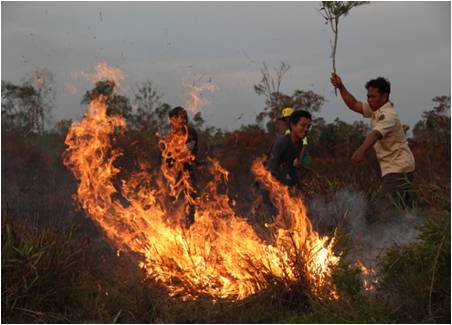
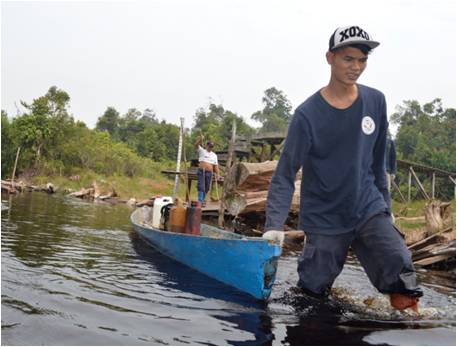
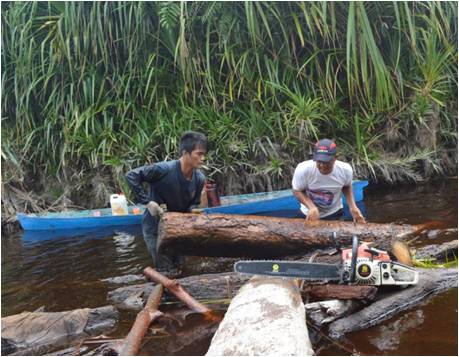
Camera trapping to save species
The Orangutan Foundation are proud to be partners of a groundbreaking Camera Trapping Project with Yayasan Orangutan Indonesia (Yayorin) and The Orangutan Tropical Peatland Project (OuTrop) - allowing us to document animals that have never been seen before in the remote and highly diverse area of Belantikan Hulu. Here, Susan Cheyne, co-coordinator of the project, tells us about the initial results... Check out the stunning footage we got; sun bears here, an orangutan here and a pangolin here.
The Belantikan-Arut area in Central Kalimantan, whose core area is Belantikan Hulu, is a spectacular landscape spanning 5,000km2 hectares across Central and West Kalimantan, is known to contain the largest single population of orangutans outside of protected areas.
The results of this work are very exciting. Not only were Sunda clouded leopards confirmed in this forest but also the elusive banteng. The banteng is a large and rare wild cattle species and is endemic to Borneo but is not widespread across the island.

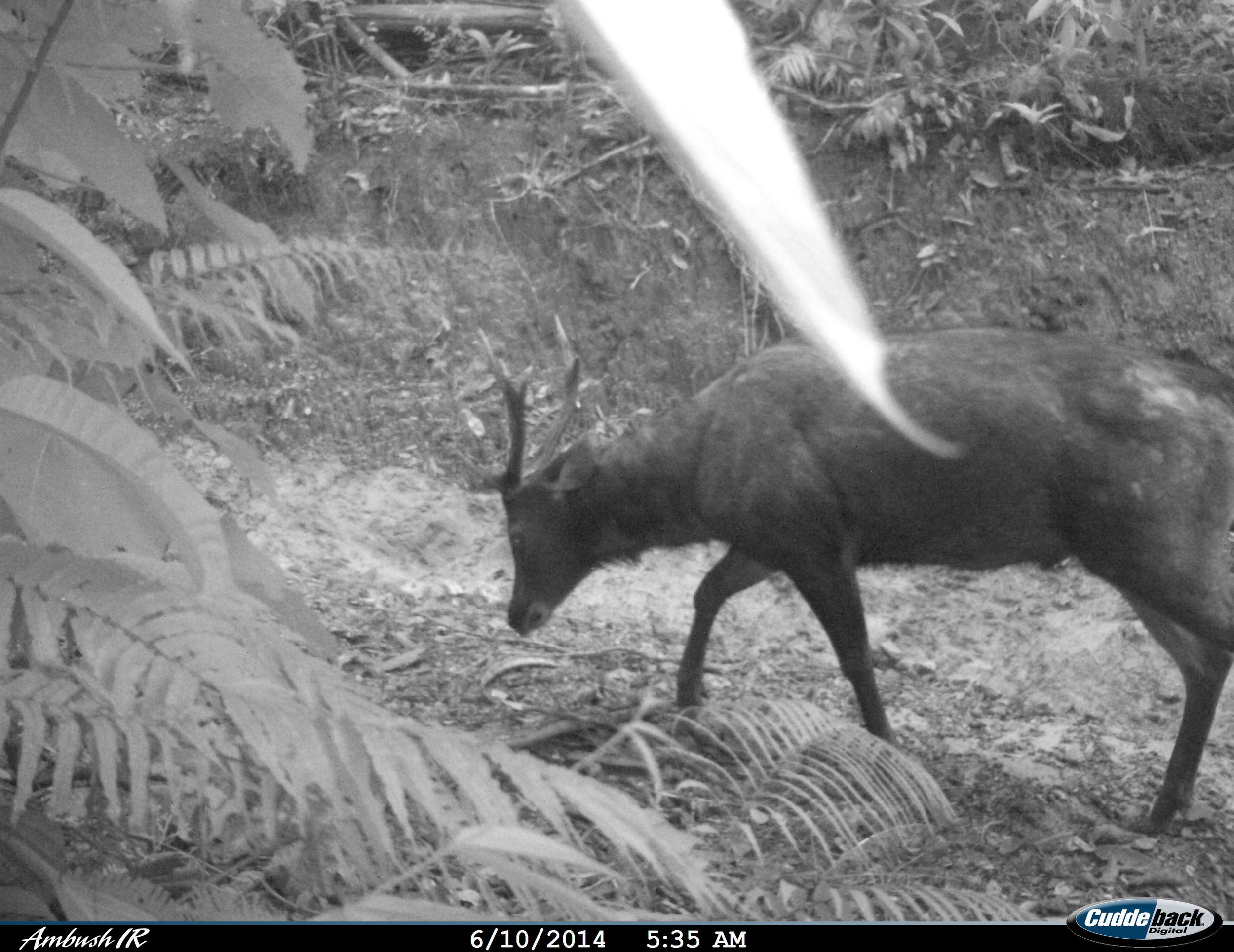
Of course orang-utans featured on the camera traps, adding to the recent information that the man of the forest in fact spends a lot of time on the ground. Not only were large males caught on camera but juveniles and mothers and infants travelling on the ground.
Of great interest is the number of deer and bearded pigs especially the majestic Sambar deer, largest of the 5 species on Borneo. Good eating for a clouded leopard!
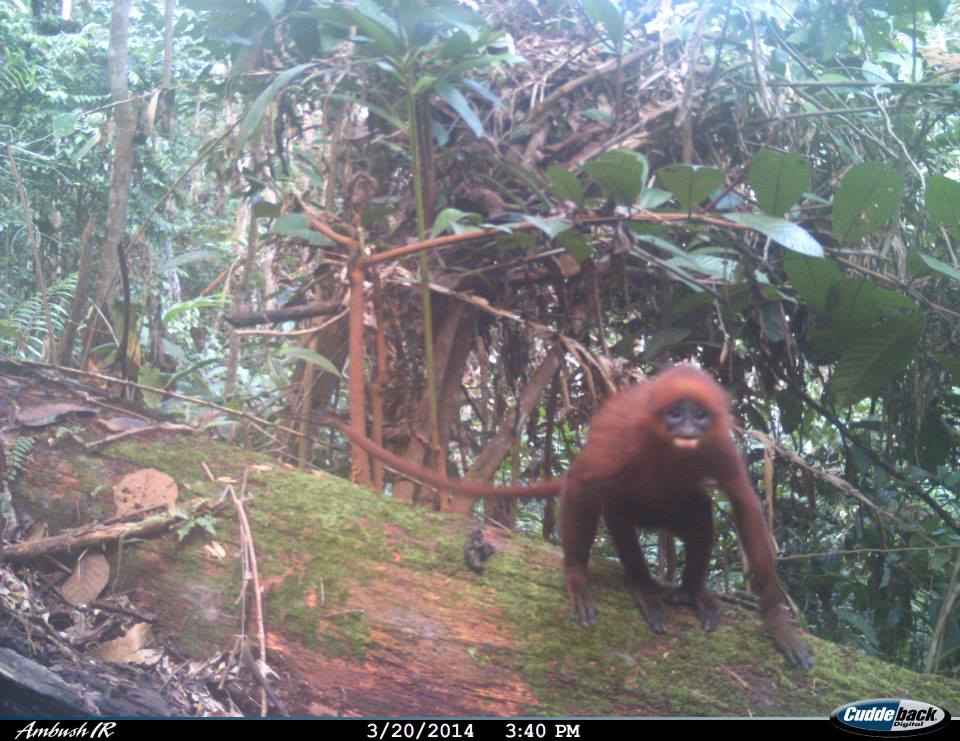
The white-fronted langur (see closely related species - the red langur - pictured above) is normally swinging up in the canopy, but like many primates, also comes to the ground. This species has a very patchy distribution across western Borneo and confirmation of the presence in Belantikan is important new information.

Sun bears are the smallest of all the world’s bears and have the longest tongue of any bear! Females generally have 1-2 cubs each year. We were fortunate to have surveyed during the time of year when cubs are venturing out and about with their mother and captured some wonderful photos and videos of their interactions.
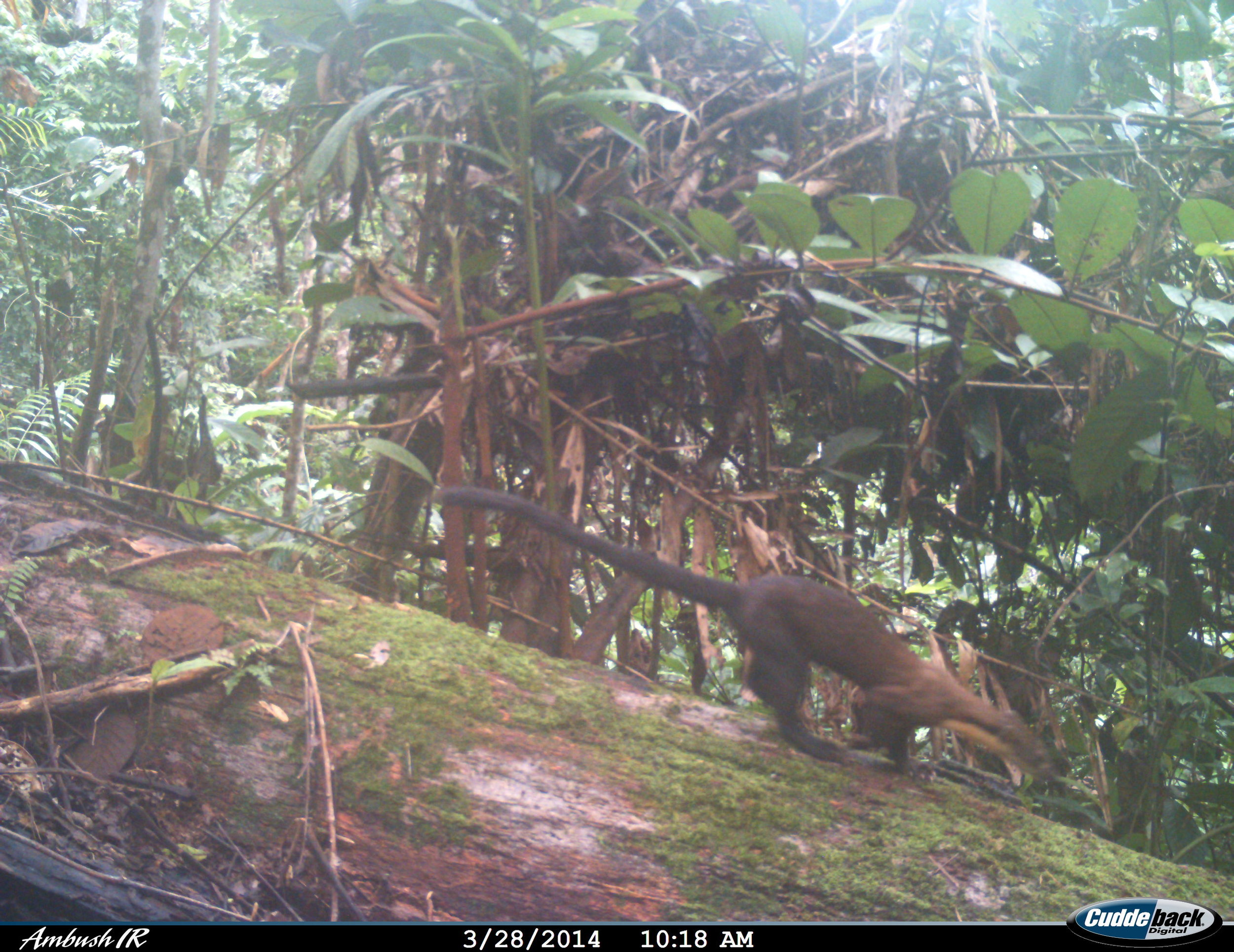
The little yellow-throated marten is apparently widely distributed throughout Borneo but not much is known about these animals. Living alone or in pairs, they are active at both day and night. Although listed as IUCN Red List Least Concern, nothing is known about the population numbers on Borneo.

Camera traps provide an amazing and unique view into the wildlife of the forests we are working to protect. Almost each photo provides new information about behaviour, distribution or activity of these animals."
Check out our recent blog for more amazing photos, or get in touch about any of our projects!








